The 50 Best Miniseries on Netflix Right Now
Movies are too short for some, shows too long for others. Enter middle-ground solution: miniseries. Now that the “movies are dying” articles are the only thing that’s actually dying, and the “it’s the golden age of TV” ones have stopped being news (why does one being in a golden age mean the other is failing?), there is a newcomer to the scene. Perfected by networks like the BBC in the past, the form is attracting growing attention from Netflix and similar platforms. 4 to 8 episodes, one season, done. Creators have more time to express their ideas, but not too long to have to recycle them. Viewers can be exposed to 7 different stories instead of 7 different seasons of Homeland (they made 4 after he died, four). It’s the perfect medium, and provided Netflix and the BBC keep coming out with good ones like the 5 below, it will be the future.
Jump to the top 10:
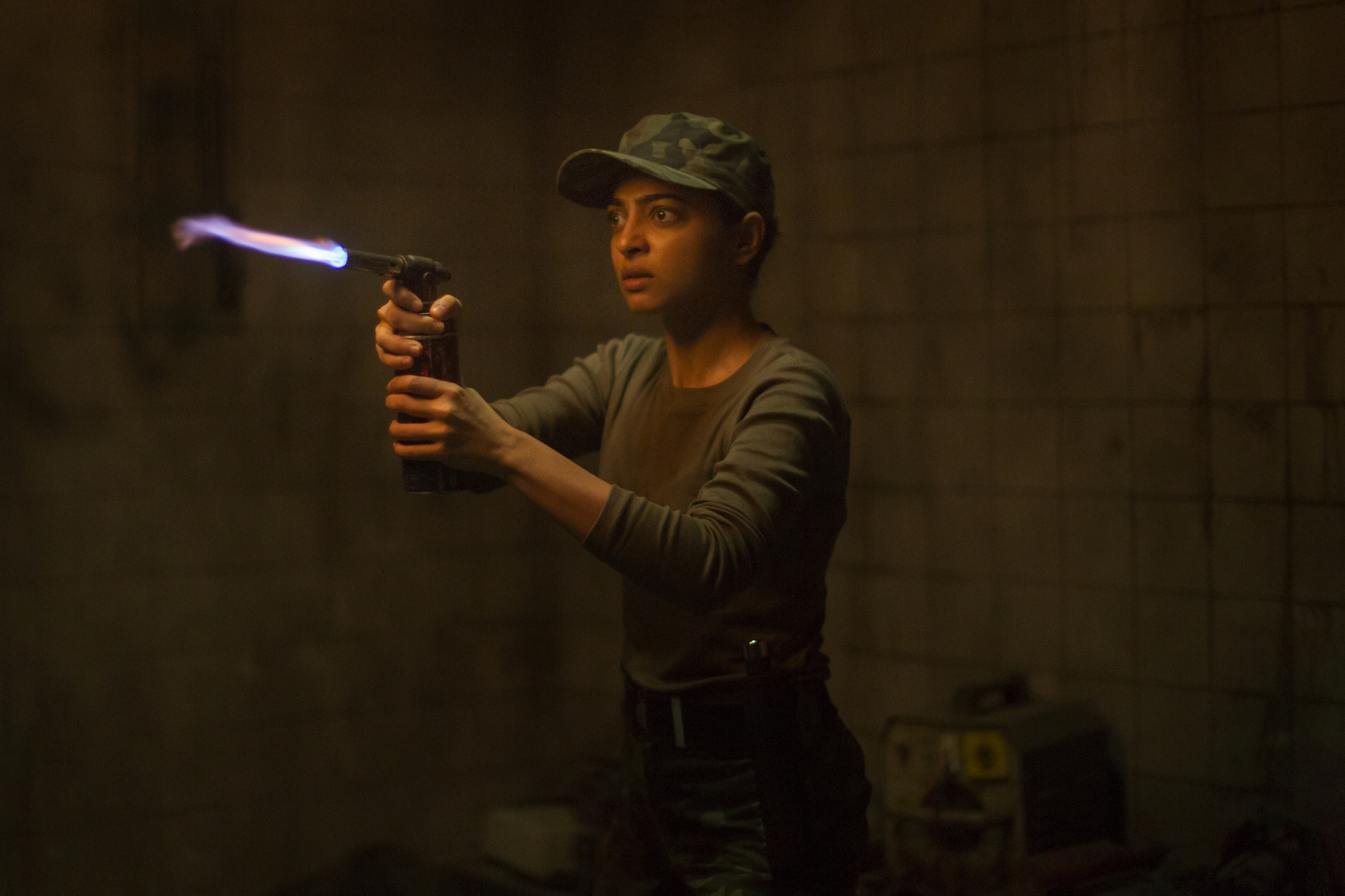
Though relatively low on scares, this three-episode Indian miniseries fully believes in horror of a different kind: governments that indiscriminately call anybody terrorists if they try to think for themselves. Set almost entirely in a military interrogation facility, Ghoul wastes no time telling us who the real monsters are, never making the mistake of making the victims appear morally questionable. When the horror finally kicks in, it feels like satisfying karma—but always with a lingering reminder that a greater evil is still out there. So while its runtime may be perhaps too short, its promise of righteous revolution is something many people around the world just might need to hear.
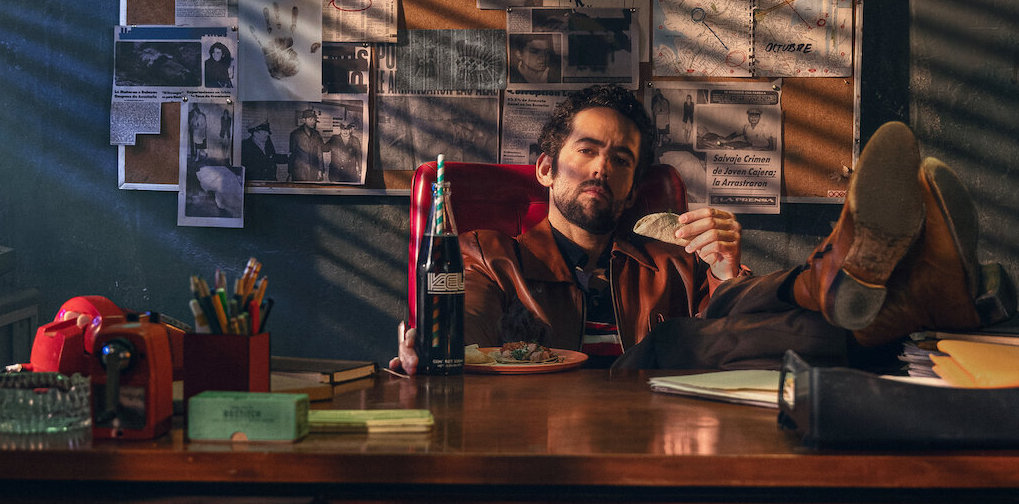
Mexico City, 1970. Héctor Belascoarán leaves his stable office job and beautiful (but unhappy) marriage to pursue the adrenaline-filled life of a private detective. The police are useless, Héctor points out, not to mention corrupt and often in on the crime, so it’s up to him to tackle the many unsolved cases that haunt the city he loves.
Because he thinks himself a hero, Héctor narrates each episode in that nostalgic noir way, but the catch is that he is, in fact, no slick savior. Hector is still a rookie, prone to blunders and miscalculations, but his perseverance saves the day. In this way Belascoarán, PI is both a tribute and a sendup of detective films of yore; it references the genre in style and substance, but it isn’t above joking about it either. It’s proof that you can challenge viewers without sacrificing the laughs, and vice versa.
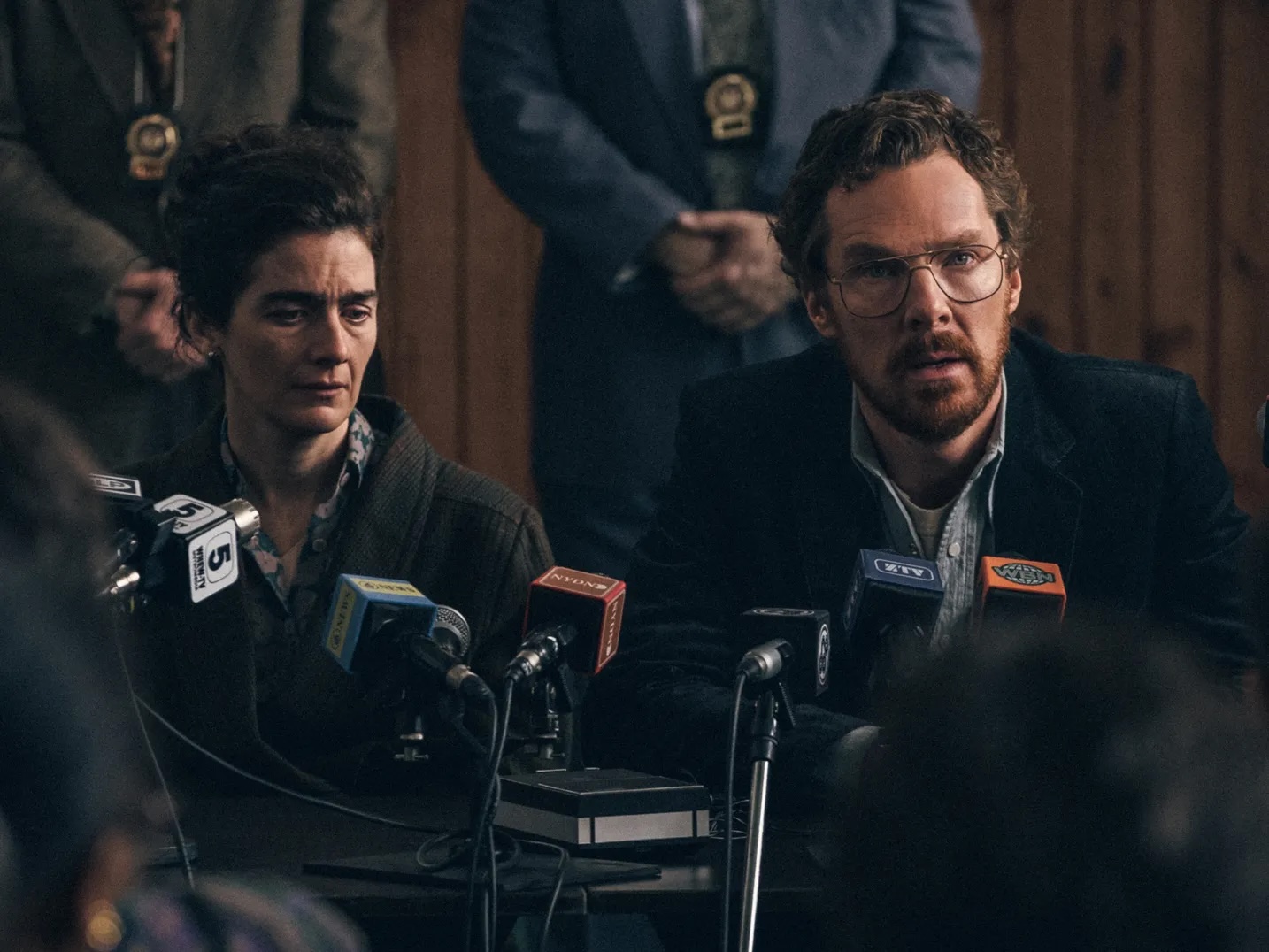
Backed by Netflix’s deep pockets, Eric looks as good as any prestige miniseries out there. As a portrait of pre-gentrified New York, it feels so detailed and lived in you can almost smell the garbage cans collecting in the corner. And this seedy atmosphere ties well with the show’s dark themes and complicated mysteries, making Eric far from the worst thing you could watch on the platform. But there’s something about Cumberbatch’s Vincent that makes him difficult to follow. Perhaps his performance is more excessive than the script calls for, or perhaps his anti-hero character is too underwritten to sympathize with. Or maybe it’s both. Whatever it is, he’s not a strong enough lead to pull the series through, though thankfully, he’s surrounded by far more interesting and involving characters, particularly Hoffman’s Cassie and Belcher III’s Ledroit. If you’re looking for a serious thriller filled with compelling (if at times overdramatic) performances, Eric is your weekend show.
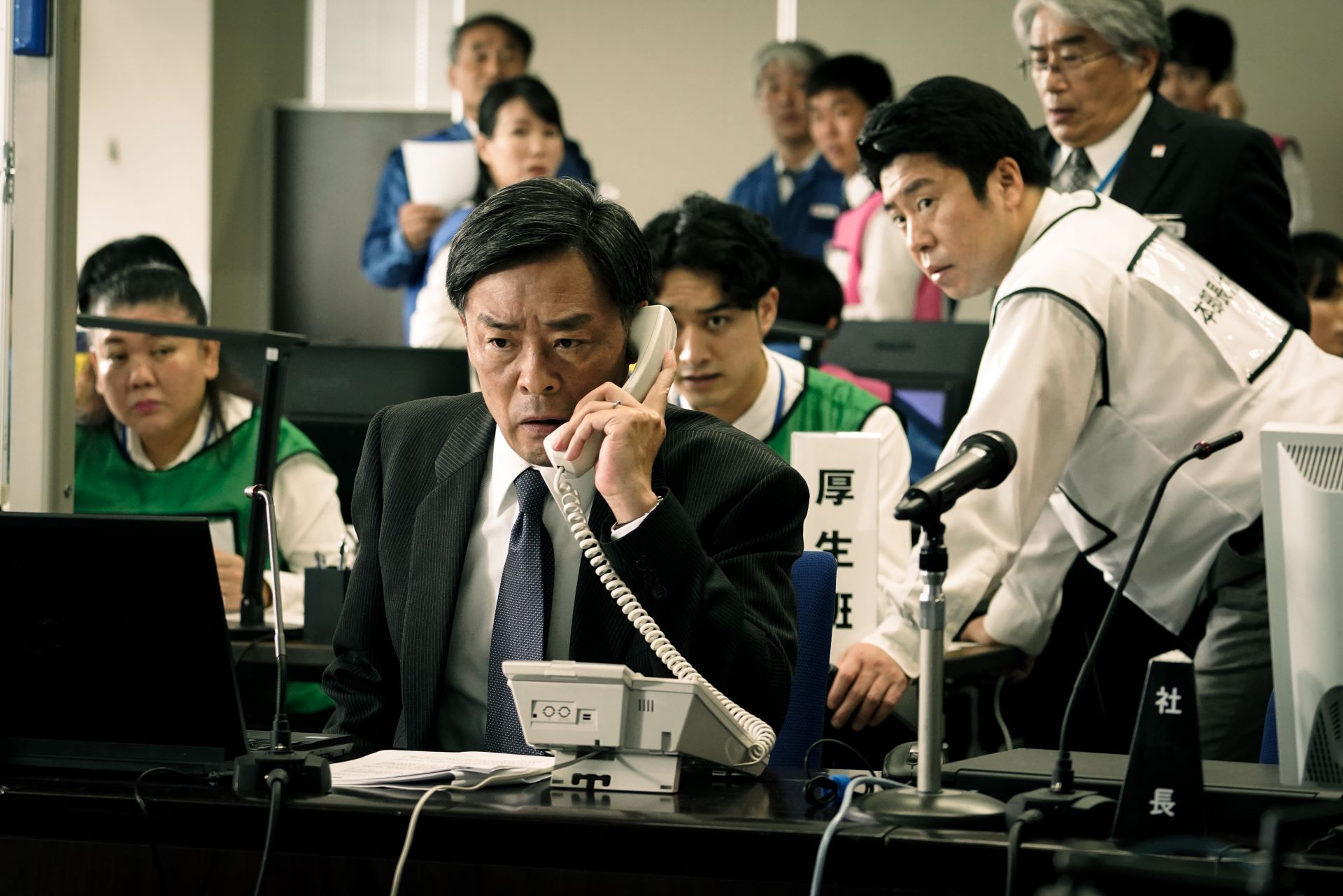
The series follows three perspectives: a government official, a Tokyo Electric Power Company employee, and a worker at the Fukushima Daiichi Nuclear Power Plant, each with their respective teams tackling the aftermath of the March 11, 2001 earthquake and tsunami. From the reporting updates to the public to the dedication of first responders, ‘The Days’ excels at piecing together the macro- and micro-decisions that went into saving the residents of Fukushima. The series deepens the narrative to be more than a mere recollection with its scenes of the families of the victims and the residents as they evacuate their homes. Its steady pace, emotional close-ups, and suspenseful score capture the harrowing atmosphere of Japan’s worst natural disaster.
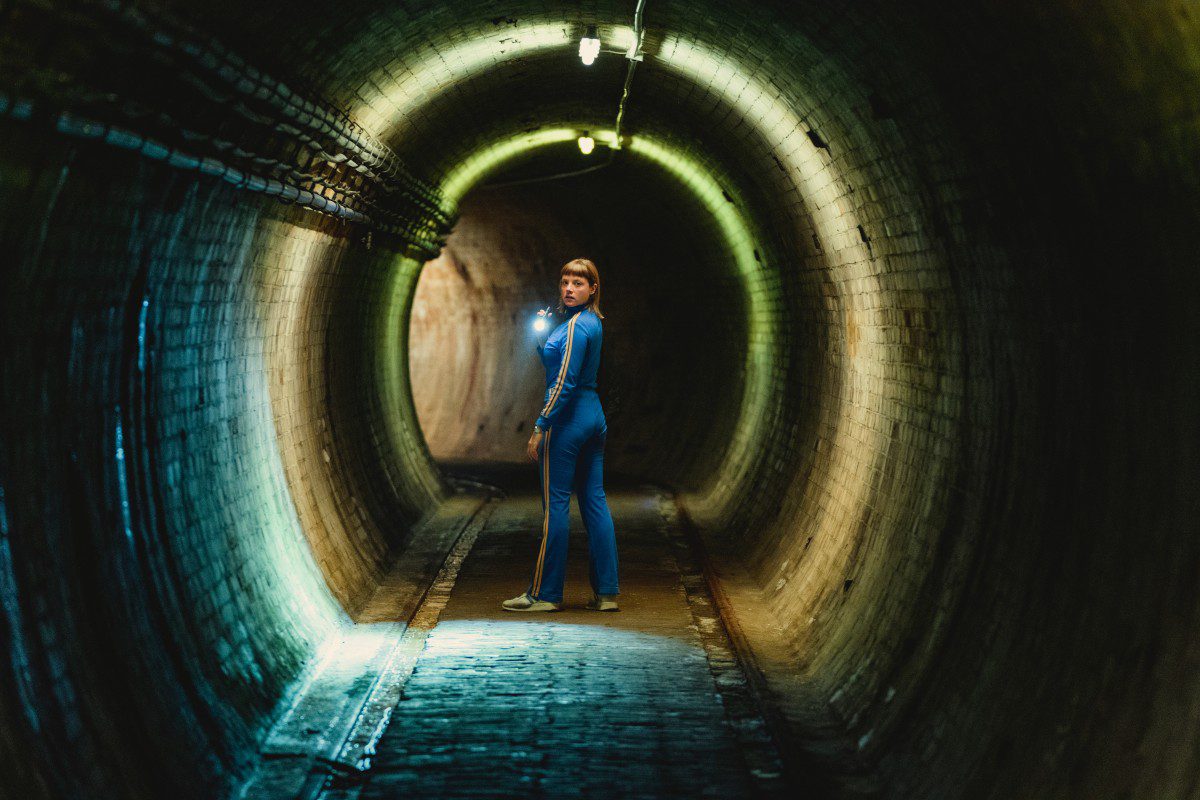
Revenge stories are always fun, especially if you have someone like Jella Haase (who plays the titular spy Kleo) to helm them. Haase switches from scorned to spritely with such ease, making the otherwise formulaic plot of the show a breeze to watch. The disguises, the getaways, the killings, and the chase are all expected but nonetheless enjoyable in this show.
If you’re looking for the next Killing Eve, this just might be it. Aside from the leads’ cheerfully deadly ways, the two shows also share the similarity of having enemies obsessing with each other, resulting in a cat-and-mouse chase that’s hard to peel your eyes off from.
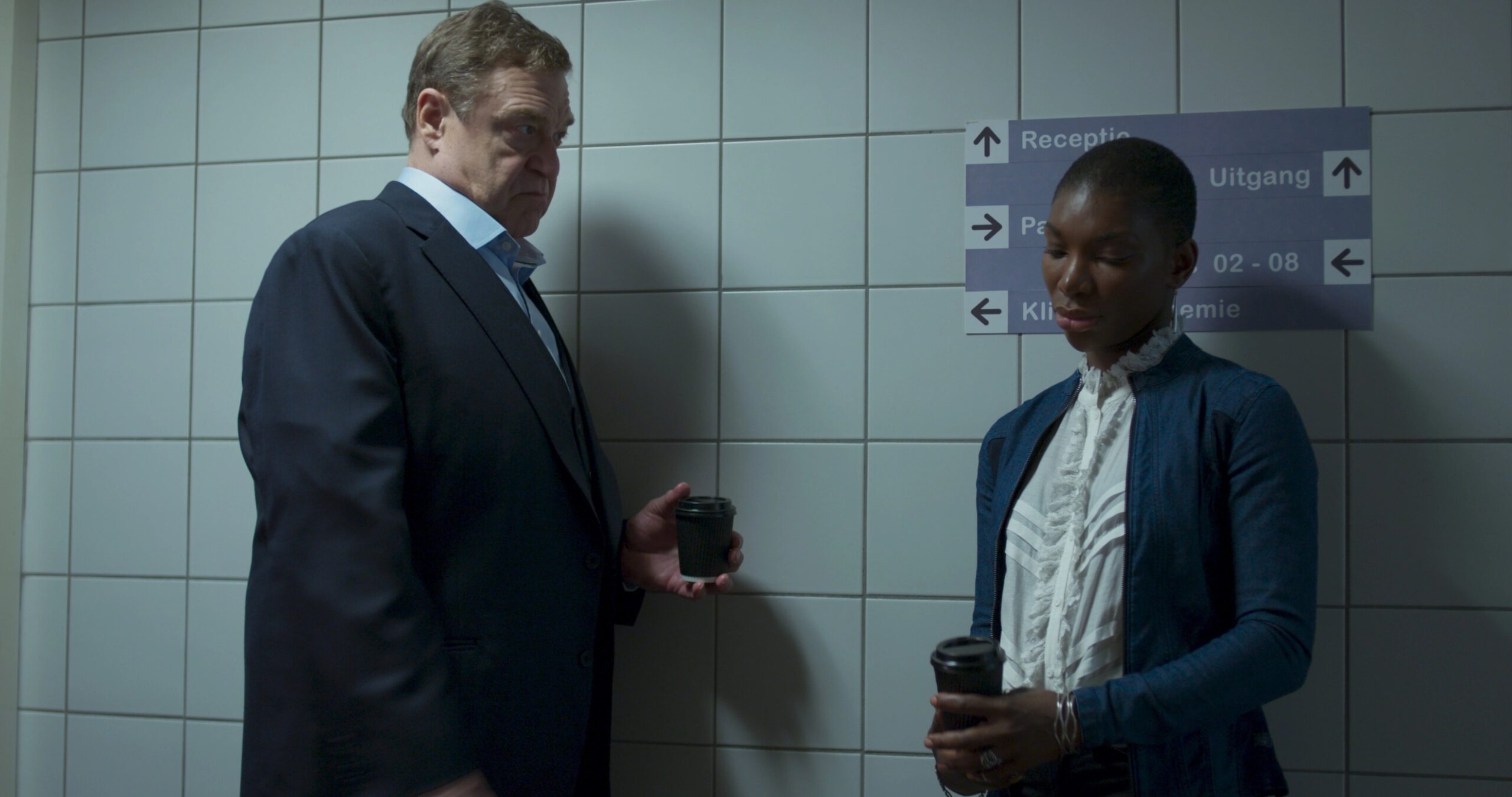
It starts off slowly, if a bit unevenly, but Black Earth Rising gradually finds its footing over the course of eight episodes. The series, a political thriller that takes a closer look at the legality of international war crimes, is led by the ever-commanding Michaela Coel and always-reliable John Goodman.
As the Rwandan adoptee and legal investigator Kate Ashby, Coel attempts to reconcile her internal turmoil with that of the cases she’s tasked with. She’s at once indignant and empathetic, shut off and loving. She wants to be grateful for surviving a genocide and finding a home in the UK, but guilt is eating away at her. On top of the dangers that she faces as a refugee and investigator, Kate is also dealing with depression, and it’s a testament to the show’s skill that her condition is treated with as much thought and care as the other, more excitable aspects of the show.
As Kate digs deeper into the mystery of who she is and exposes, along the way, the bloody involvement of different countries and institutes in African affairs, we’re forced to confront ethical questions (difficult but necessary) that stay with us long after the credits have rolled.

Ray is a captivating anthology series that pays tribute to the genius of renowned Indian filmmaker Satyajit Ray. With four distinct stories, each directed by different acclaimed directors, the series showcases Ray’s signature blend of human drama, mystery, and social commentary. The performances by the talented ensemble cast bring Ray’s nuanced characters to life. From tales of love and betrayal to stories exploring the complexities of human nature, Ray offers a rich and diverse viewing experience. With its engaging narratives, stunning visuals, and thought-provoking themes, there is bound to be an entry in the series for every mystery lover.
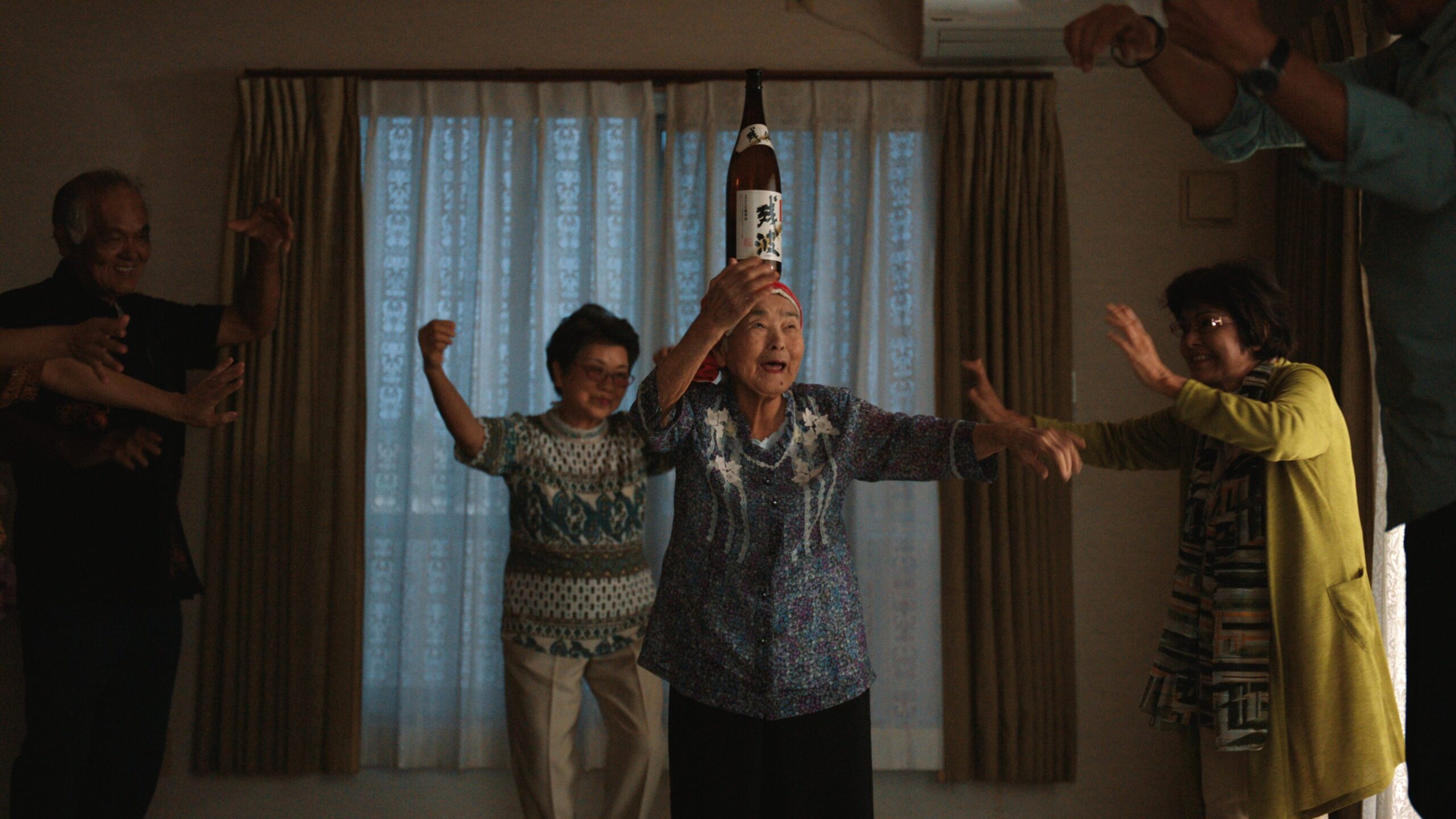
Best known for his research in blue zones, Dan Buettner brings us to these communities through his new Netflix docuseries. Live to 100: Secrets of the Blue Zones is a short and straight-to-the-point miniseries depicting the five designated blue zones around the world. Detailing differences in diet, mindsets, and activities, the series obviously advocates for a certain type of healthy living, written extensively about by the host. However, rather than the host constantly lecturing about what he learned, the show is mostly composed of moments where he interviews the residents directly. The travelog feels more like asking your elders for life advice, more so than a longevity tip info dump, or advertisement for Buettner’s other books.
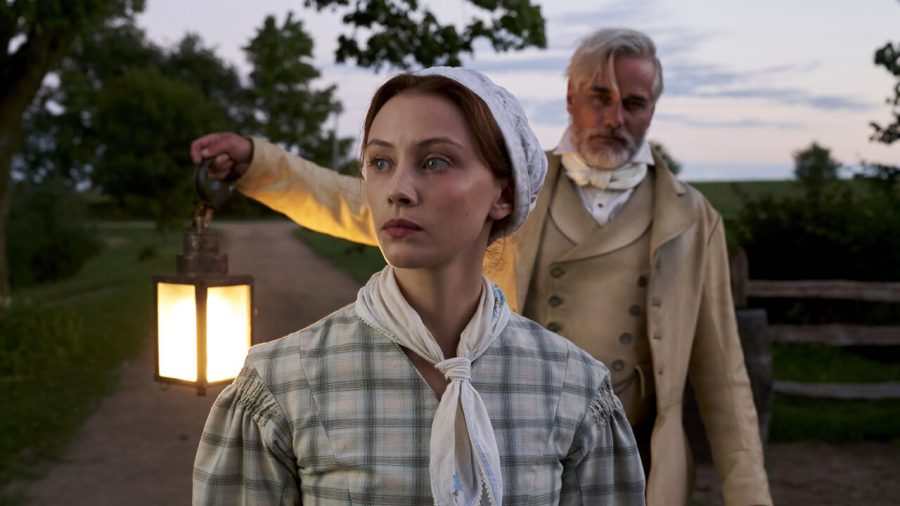
This miniseries is based on a Margret Atwood novel and was also produced by her. The script was written by Canadian filmmaker extraordinaire Sarah Polley (Stories We Tell).
Grace is a poor but bright Irish immigrant in Upper Canada who is accused and convicted of a double murder. 15 years into her life sentence, a young American doctor is sent to try to get her out.
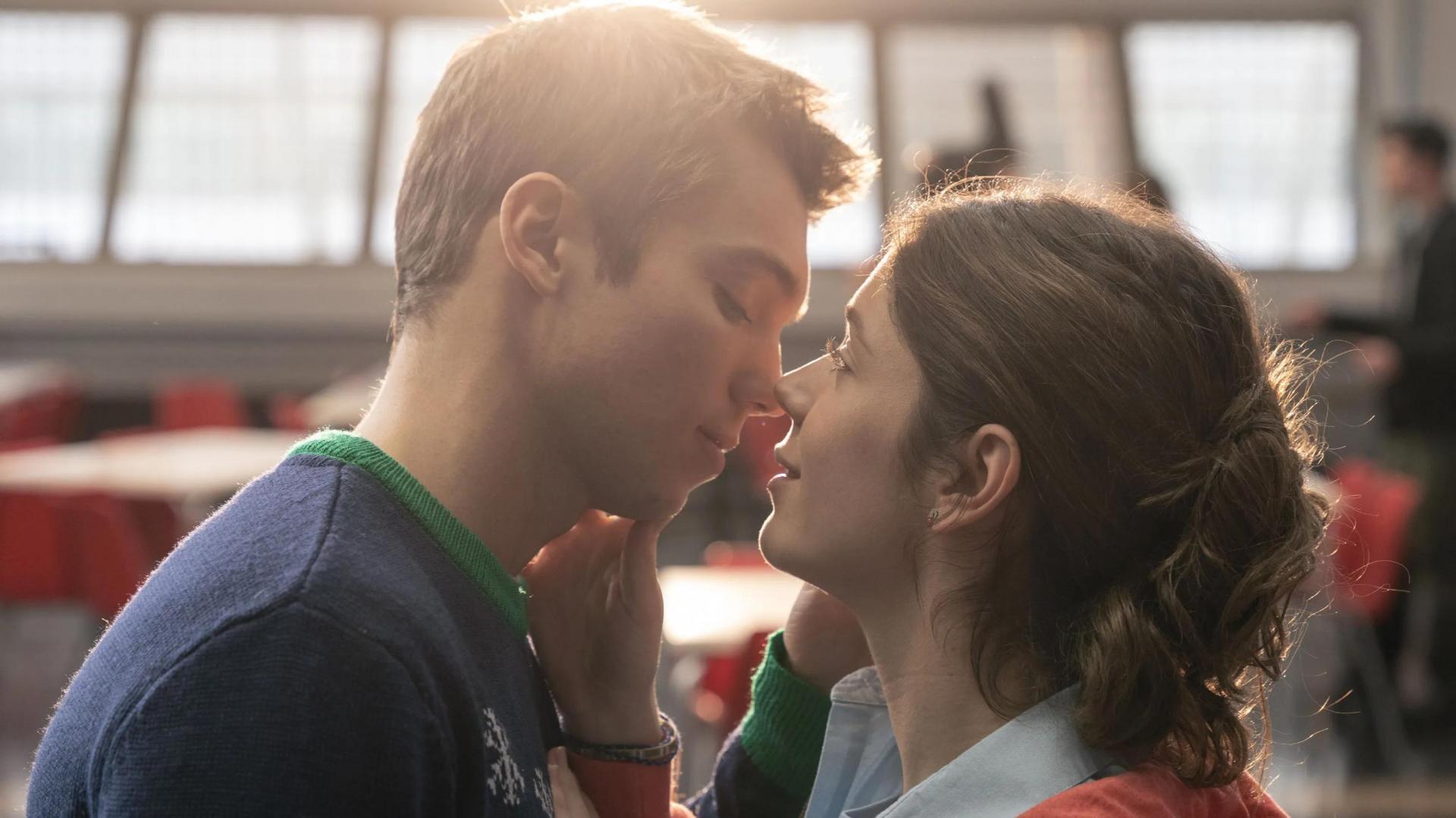
In Love All Over Again has many of the romance tropes fans of the genre would enjoy. The star-crossed lovers, the gay best friend, the absent-minded but well-meaning parent, and the classic romance drama jobs are present in the series. However, unlike other series, the show literally starts off with a bang. The main couple don’t get separated because of toxic dynamics or tragedy, but literally because of the 2004 Madrid train bombings. But this isn’t just a one-off event, it’s the event that shifts Irene’s life forever, as she tries to heal and process the event as best as she can. Some of the series’ plot points may not be new, but it’s sincere in examining how that event affected people’s lives, without being overly dramatic. The resulting series is sweet and it captures the Y2K nostalgia that’s currently en vogue.
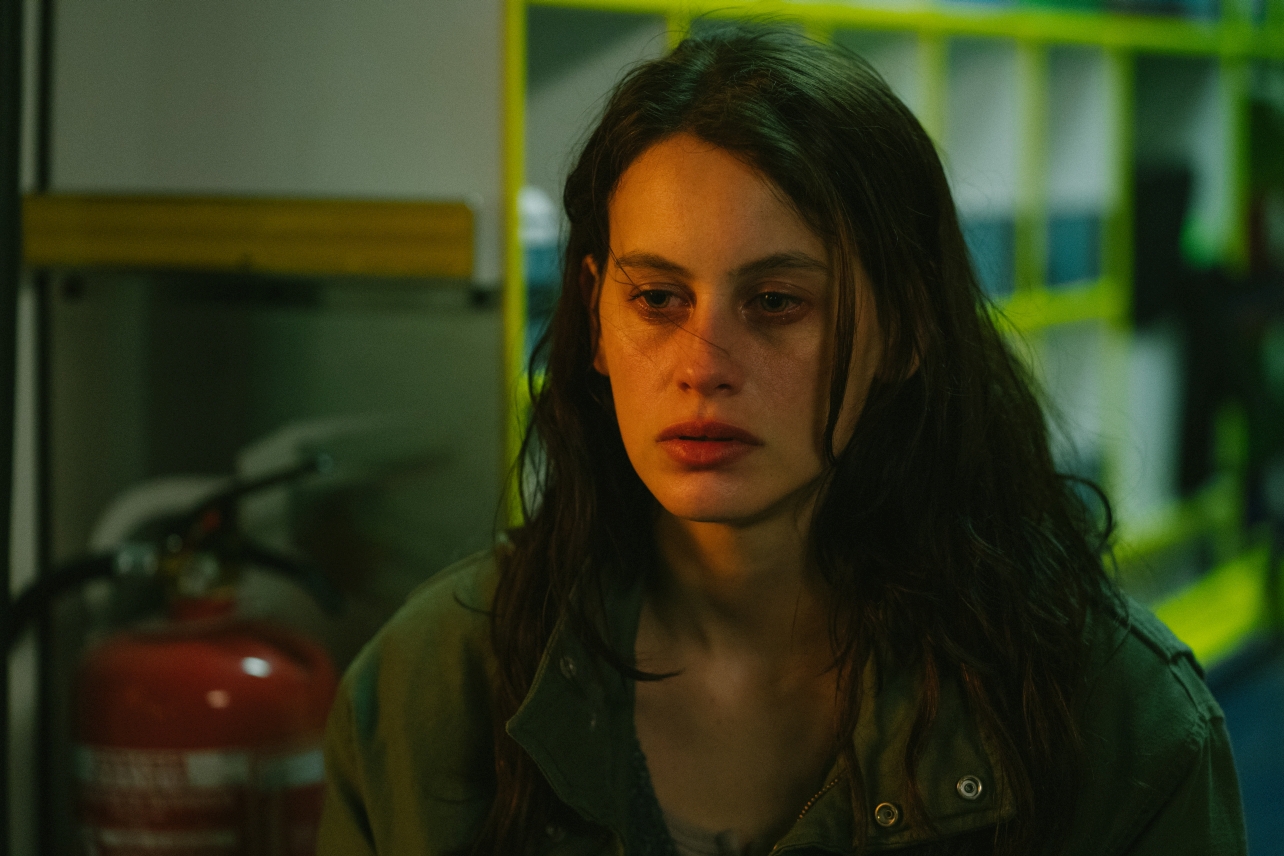
Child kidnapping is any parent’s nightmare, and it’s the nightmare that drives the events of Spanish crime thriller The Snow Girl. Based on the 2020 novel of the same name, the limited series takes a unique double-pronged approach to the case at hand. The show goes through the regular police investigations we’ve seen previously, but it also comes mainly from the perspective of journalist Miren Rojo, whose previous trauma understandably limits her trust with the authorities. As the show moves the story from New York to Malaga, and switches between perspectives, and timelines, The Snow Girl adeptly maintains the novel’s original suspense, without over sensationalizing the crime at hand.
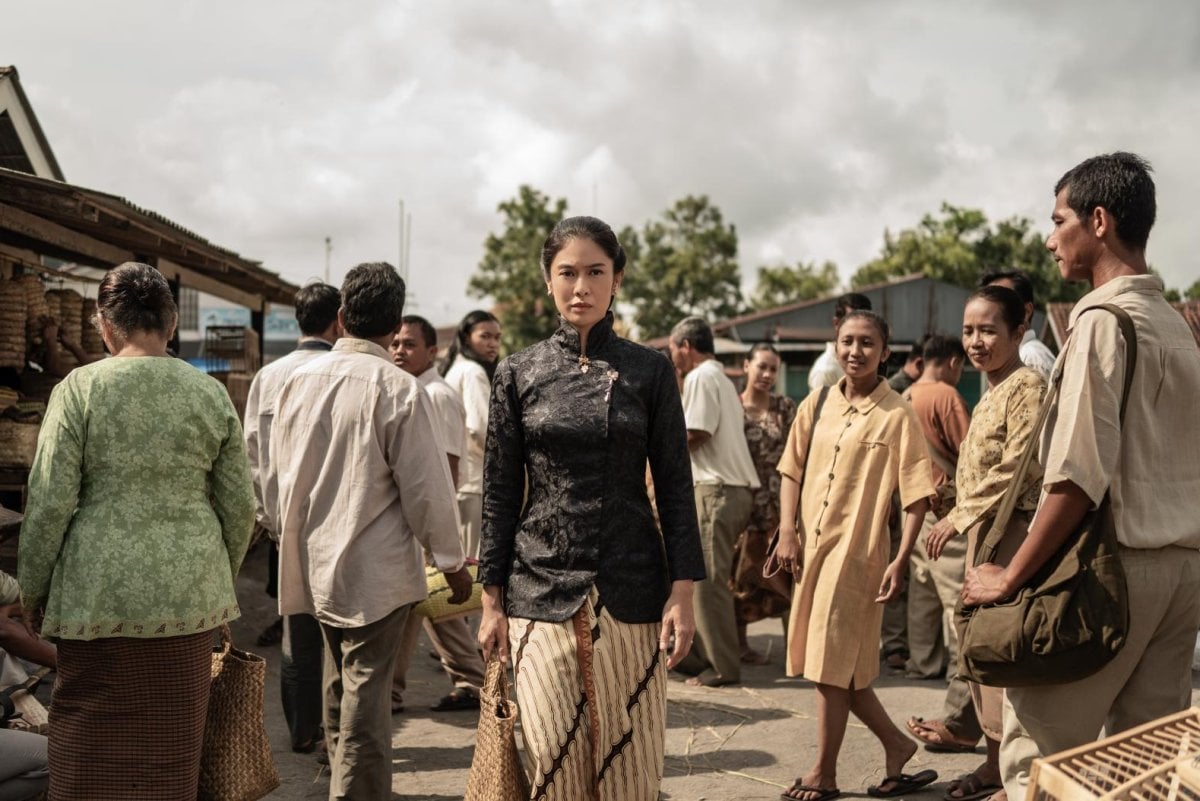
Netflix is no stranger to adapting novels, nor to period dramas – Cigarette Girl is one of many, but it’s one from Indonesia that stands out due to its unique premise and excellent execution. Based on the novel by Ratih Kumala, the show is a slow-burn, smoldering period romance set amidst Indonesia’s kretek cigarette industry, booming in the 1960s, but it’s framed within the 2000s, where the man’s family uncovers his lost love before he dies. The alternating timelines keep the mystery fresh, as each new revelation uncovers what really happened between the two, as well as what would happen with the fate of their families. This intriguing structure, along with excellent writing, and stunning sets and costumes, make Cigarette Girl a compelling show to watch.

A Round of Applause is just so darn weird. We’ve seen stories about people remembering their past lives, but we’ve never seen them able to recall and yearn for their life as pulp in an orange, of all things. We’ve seen fetuses as characters, but we’ve never seen them as a neurotic chainsmoker, tugging at the umbilical cord in complaint. These strange, existential ideas get to amusingly absurd paths, leading to punchlines that aren’t expected but pulls out unexpected laughter while making us contemplate the lives we’re currently living. Even if the offbeat humor isn’t to your taste, A Round of Applause just feels so original that it’s worth a look.
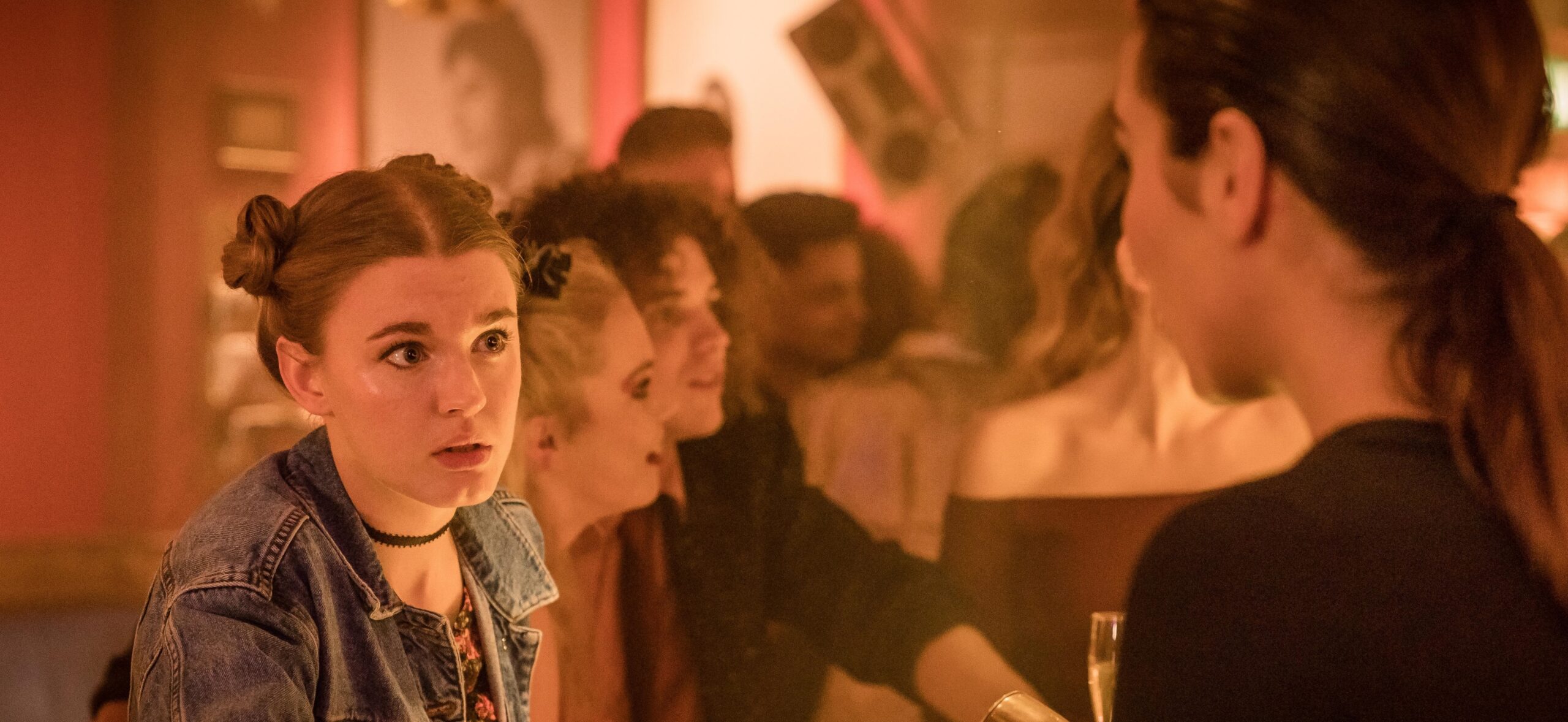
Created by Harlan Coben (the crime novelist-turned-showrunner behind many streaming mysteries), Safe is a fast-paced thriller following a widower in search of his missing daughter. The more he digs, the more he realizes that his town is anything but small and sleepy, and that he can’t trust the people closest to him. It’s the sort of show that involves multiple people and plotlines, which could easily go south if it fell into the wrong hands, but Safe manages to make it all work. It doesn’t require you to care deeply about these characters, but it does pull you in with its shocking secrets and (at times frustrating) cliffhangers. Sure, it can get soapy at times, but it’s never not entertaining. And though it revisits the night of the disappearance often, it always features a new angle and point of view, making it feel fresh every single time.

If you are a historian, a communist, a capitalist, a Russian or American citizen, you would likely already have opinions about the Cold War. But regardless of your knowledge on the topic, there’s no denying that Netflix docuseries Turning Point: The Bomb and the Cold War is such an ambitious documentary, dedicating a whopping 9 hours to explain the Cold War and its ramifications in such a comprehensive, well-paced way, trying to balance between various perspectives from all over the world. Of course, being from an American production company, it does slightly lean towards the American perspective, with some of the Netflix flair that you can see in their other documentaries. Nonetheless, The Bomb and the Cold War is a handy explainer to the history that still shapes many of today’s conflicts.
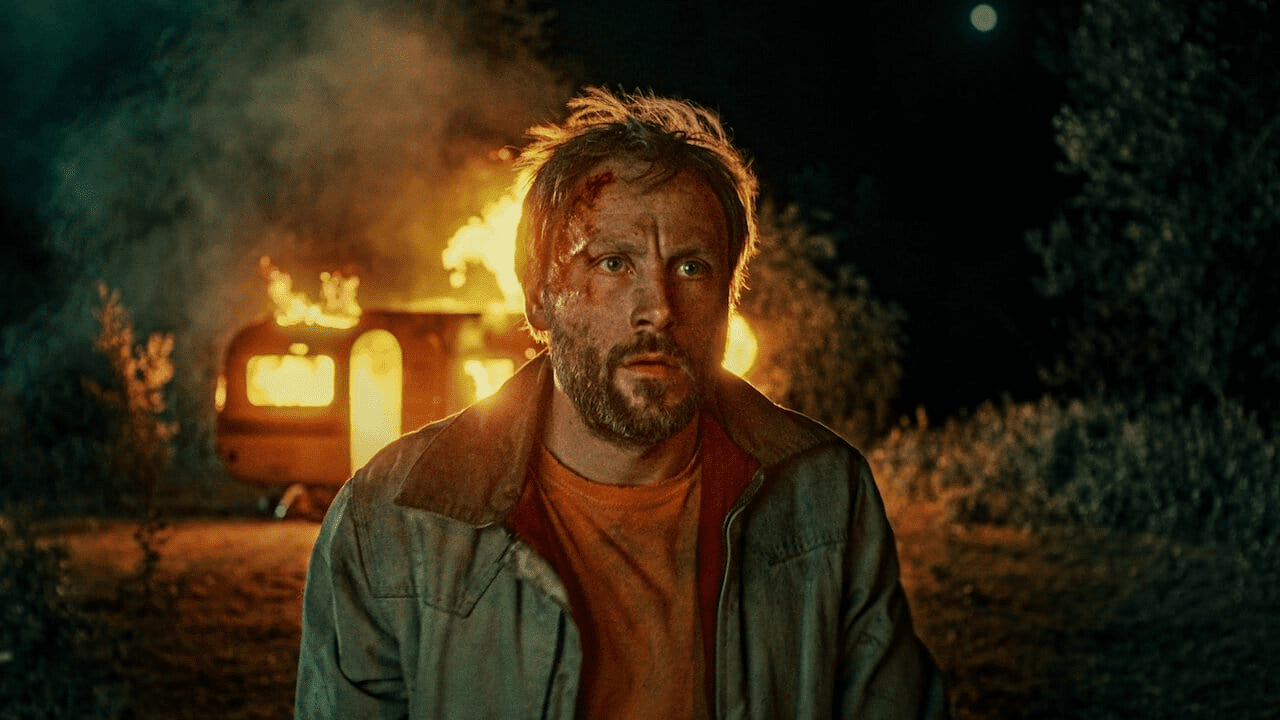
Mike Atlas is a former police detective now living on the streets as he reopens a supposedly solved murder case with a rookie prosecutor living in her mother’s shadow. As they dig deeper, they uncover a sinister conspiracy that reaches deep into the core of the police and justice system. The series is well-acted, with Max Riemelt giving an outstanding performance of a troubled detective suffering from trauma, guilt, and regret. Now homeless, with gaps in his memories, Atlas uses his dormant detective skills to discover the truth from eight months ago and protect his now-estranged family. There’s never a dull moment as mysteries unfold from multiple angles and pieces fall into place as theories fall apart. Sleeping Dog is an addictive guessing game until the end.
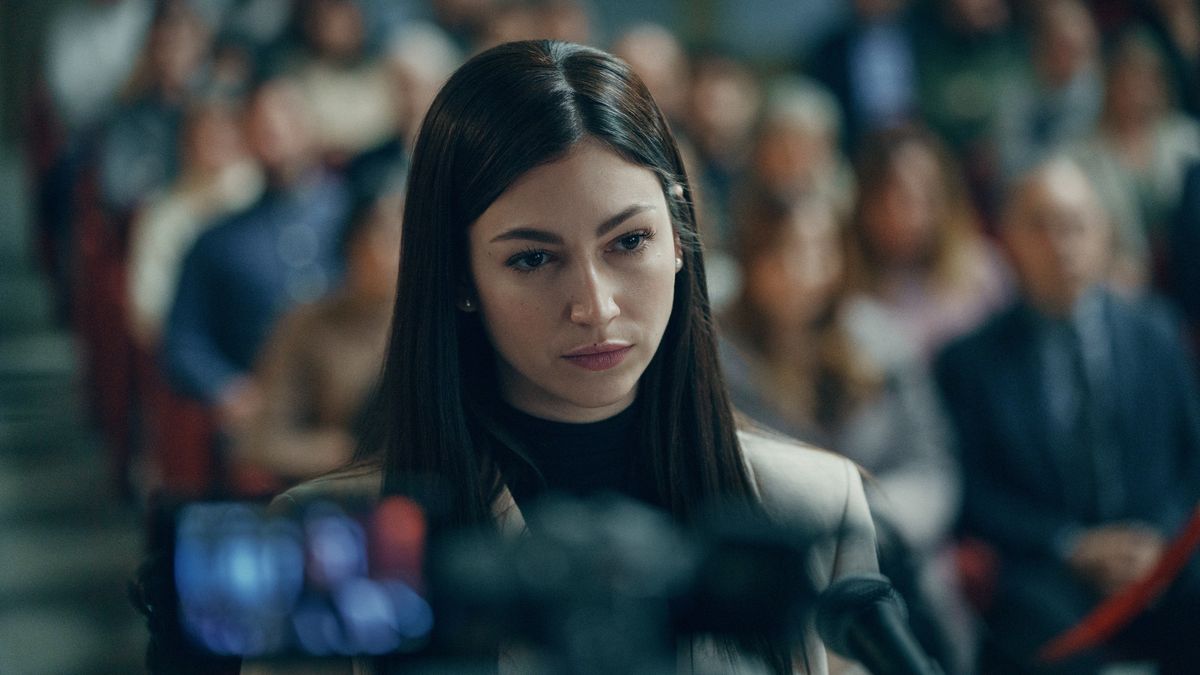
Releasing a documentary and a mini-series on the same case on the same day, Netflix understands how compelling Rosa Peral’s story is. Burning Body dramatizes the case’s events, but it does so in a way that questions the police as an institution. With the case, it’s clear that the ones assigned to protect citizens from crimes are trained enough to hide their own. However, the series also underscores the blatant sexism in their ranks, from higher ups taking advantage of new recruits, to spreading revenge porn on their fellow colleagues. With Money Heist’s Úrsula Corberó on the helm, Burning Body paints a double sided look of a multifaceted woman.
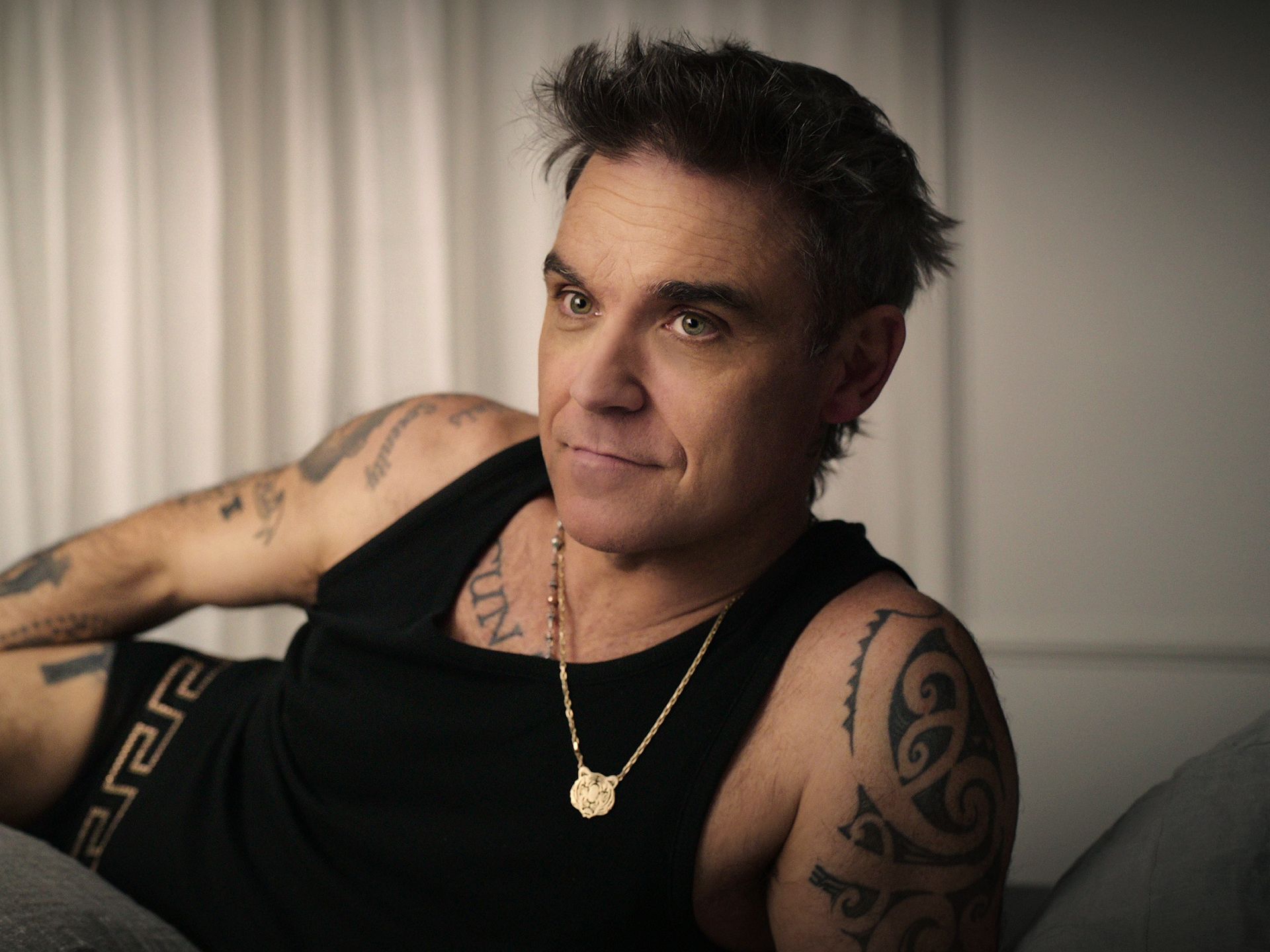
With a long and chaotic 30 years in the industry, it’s hard to encapsulate Robbie Williams’ whole musical career in a documentary. There are plenty of songs to tackle, plenty of scandals to explain, and Netflix tries to portray it all through its latest four part docuseries. Given its lengthy subject matter, it’s impossible to tackle everything, of course, so it mainly focuses on the artists’ mindset and mental health as Robbie Williams himself looks back at previous footage of himself. There’s some comfort in the fact that the singer now feels more settled in himself, something comforting in the idea that depression can be handled and overcome, but it makes this docuseries a fairly vulnerable one for the artist, and it’s an intriguing behind the scenes look for his fans.
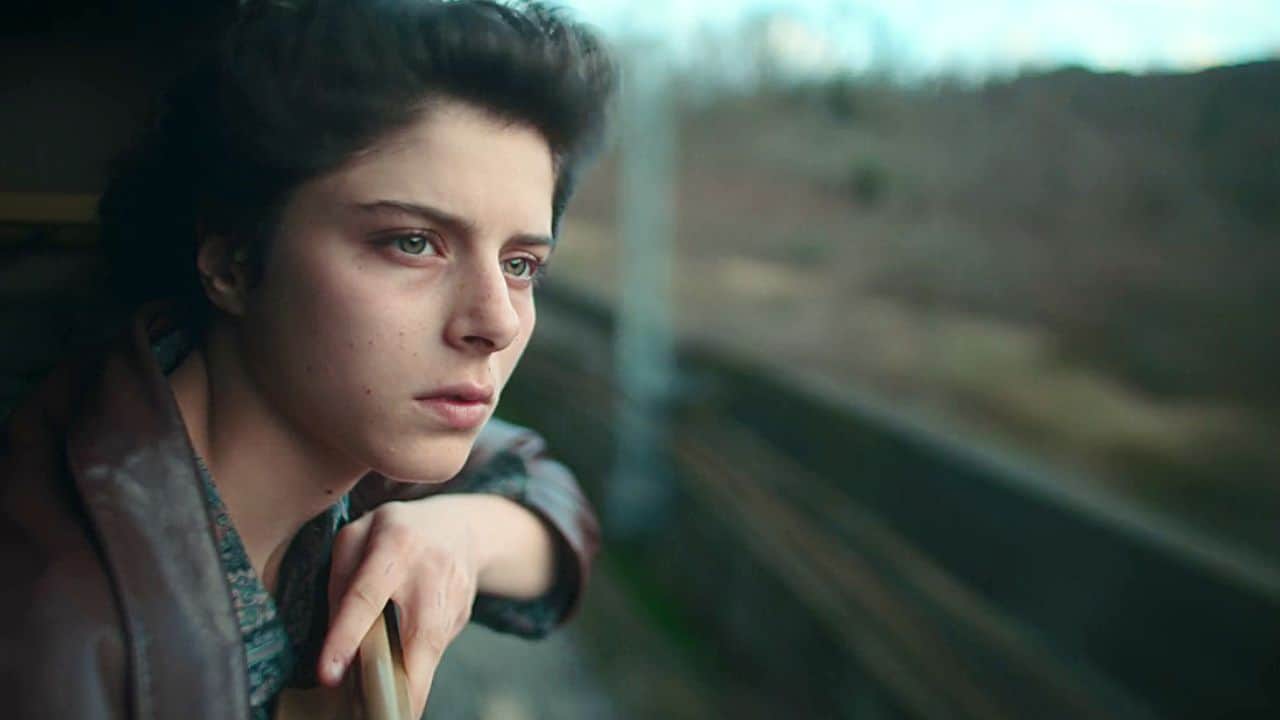
Based on a novel, The Lying Life of Adults might feel, at first, like a standard Netflix coming-of-age series, complete with vintage styling (the 90’s, this time) and teenage shenanigans, like skipping classes, preoccupation over sex, and rebelling against parental disapproval. Sure, the show does go through these moments, but the writing of original novelist Elena Ferrante, with the assistance of the writing team and showrunner Edoardo De Angelis, elevates this template through its subtleties, as Giovanna visits her estranged aunt Vittoria, and compares and contrasts the way she lives, with the way her parents approach life. It’s both a portrait of a divided family, but also one of a divided city, and it makes Giovanna’s coming-of-age a more nuanced journey that we haven’t seen before.
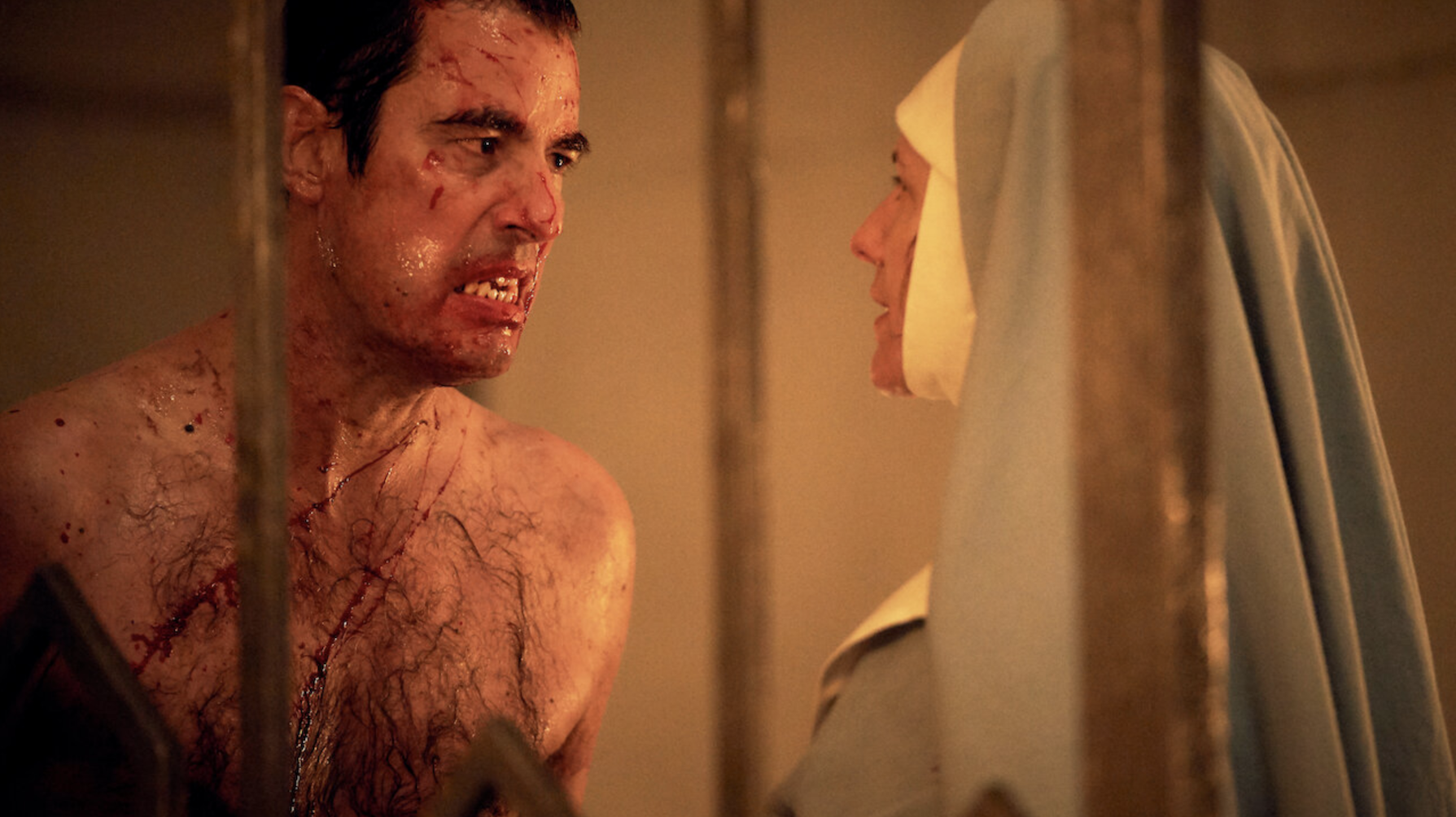
Misunderstood by some at the time of its original release, this three-episode adaptation of Dracula from the creators of BBC’s Sherlock goes from being a highly satisfying slice of horror to something totally unrecognizable—which is why it’s so rewarding to revisit today. Blessed with stellar production design, incredible practical effects, and brilliant performances from a depraved Claes Bang (as the titular vampire) and an impossibly heroic Dolly Wells (Sister Agatha), the miniseries may take many liberties with the source material, but it always builds toward greater themes. And while some problems remain, like its rushed and tonally jarring finale, how the show is ultimately able to explore the distrust that Dracula leaves in his wake, as well as the nature of Dracula as a legend in himself, is well worth the binge.
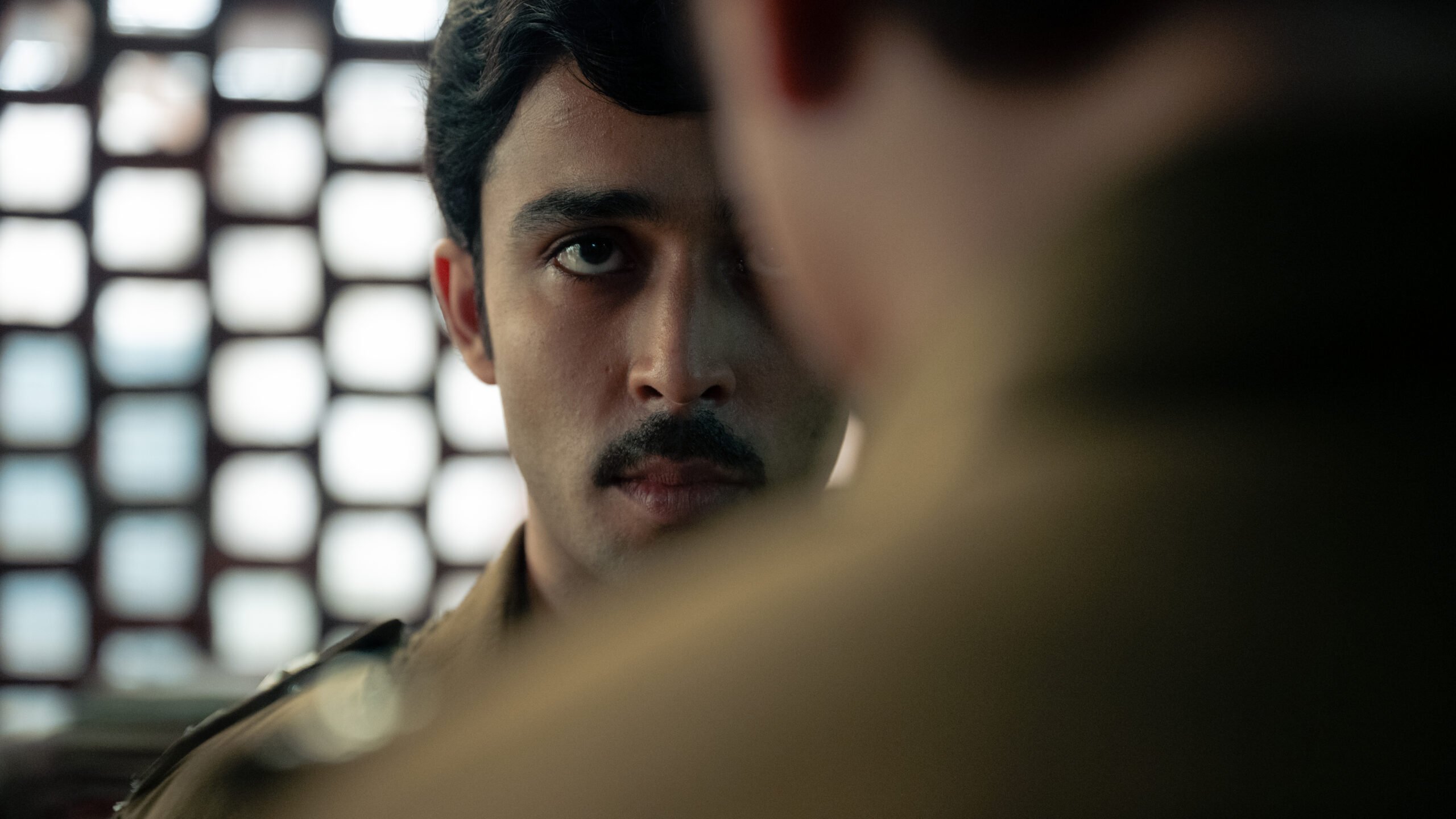
With the fresh-faced cast and the sleek camerawork, Black Warrant, at first, didn’t seem to be the gritty adaptation of the exposé outlining the systemic corruption of the Tihar Jail in the 1980s. But, aesthetic aside, that’s precisely what Black Warrant is. Opening to Zahan Kapoor as Sunil Gupta being interviewed for the job as jailer, the show takes him and the audience to the tour of the notorious prison, and it’s a gripping one not because of the usual prisoner shenanigans, but because of the way the officers themselves happen to be in on the drugs and alcohol trade inside– and they’re ready to pin it all on Gupta if things go down. Showrunner Vikramaditya Motwane pulls it all together with excellent performances from the cast, an eerie score, and the real life headlines of some of India’s notorious prisoners.
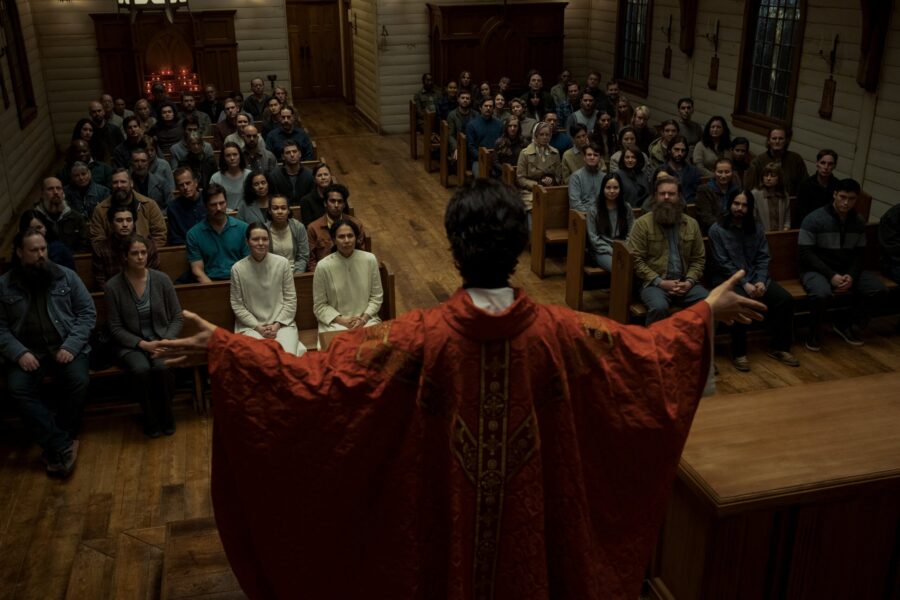
From Mike Flanagan, creator of The Haunting anthology, comes Midnight Mass, a miniseries that is just as gory, unsettling, and supernaturally twisted as any Flanagan horror flick. The series follows an ex-convict who returns to his small town just upon the arrival of a mysterious but alluring priest. As inexplicable events start to happen, the townsfolk hang onto the churchman’s words, seeking reassurance where they can.
With lots to say about religious fanaticism and perpetual grief, Midnight Mass is part of a new wave of layered and thoughtful scary stories currently dominating the genre. While its stately and meditative pace can be overbearing sometimes, it never runs out of things to shock and unnerve the soul.

Once you get past its kiddy dialogue and somewhat overenthusiastic voice performances, Maya and the Three delivers one of the most thrilling action spectacles for children’s television. Taking its cue from Mesoamerican folklore, this nine-episode miniseries is draped from head to toe in lavish, intricate visuals and is directed with a surplus of stylistic choices, with characters frequently breaking out of the frame itself. And once the action starts, it almost never lets up. It never becomes too frightening for kids, and it’s mounted on a seriously impressive scale that any adult should appreciate. The fights are dynamic, intense, and beautifully constructed almost like dances—giving kids and kids-at-heart lots to marvel at together.
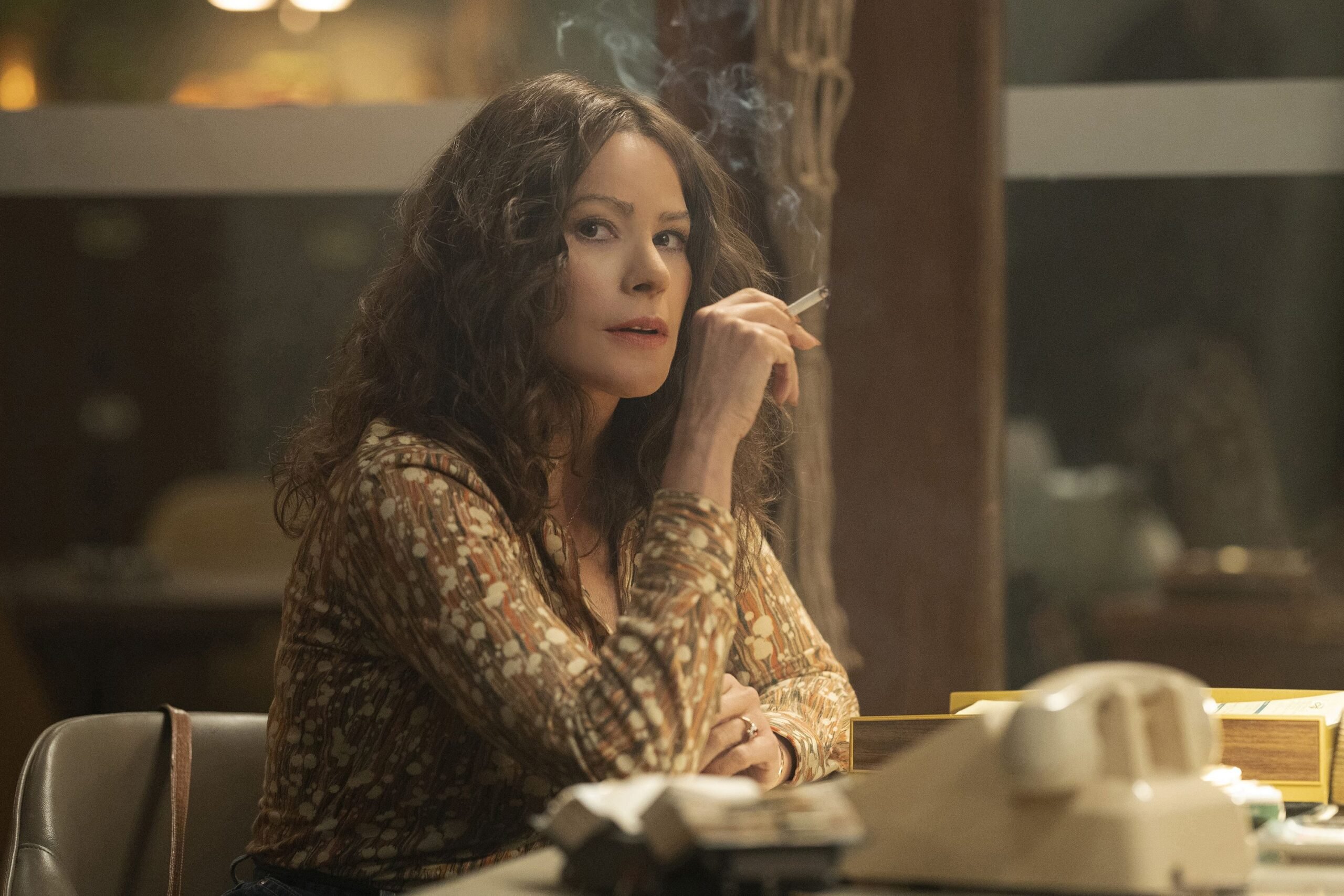
With the success of Narcos, Netflix has created multiple shows about drugs in Latin America to the point that the genre is a tad oversaturated, but with Sofia Vergara heading the miniseries on the real-life cocaine queenpin, Griselda is one that you have to watch. Unlike other depictions of Blanco, Vergara’s series puts her front and center, focusing on the initial struggles it took for her to be taken seriously and the darkness that emerged once she got her way. And of course, Vergara is fantastic, sliding into the drama with an ease that makes us want to see more. While the show isn’t fully accurate, and six episodes are too short to tackle her decades-long rule, Griselda nonetheless is compelling television.
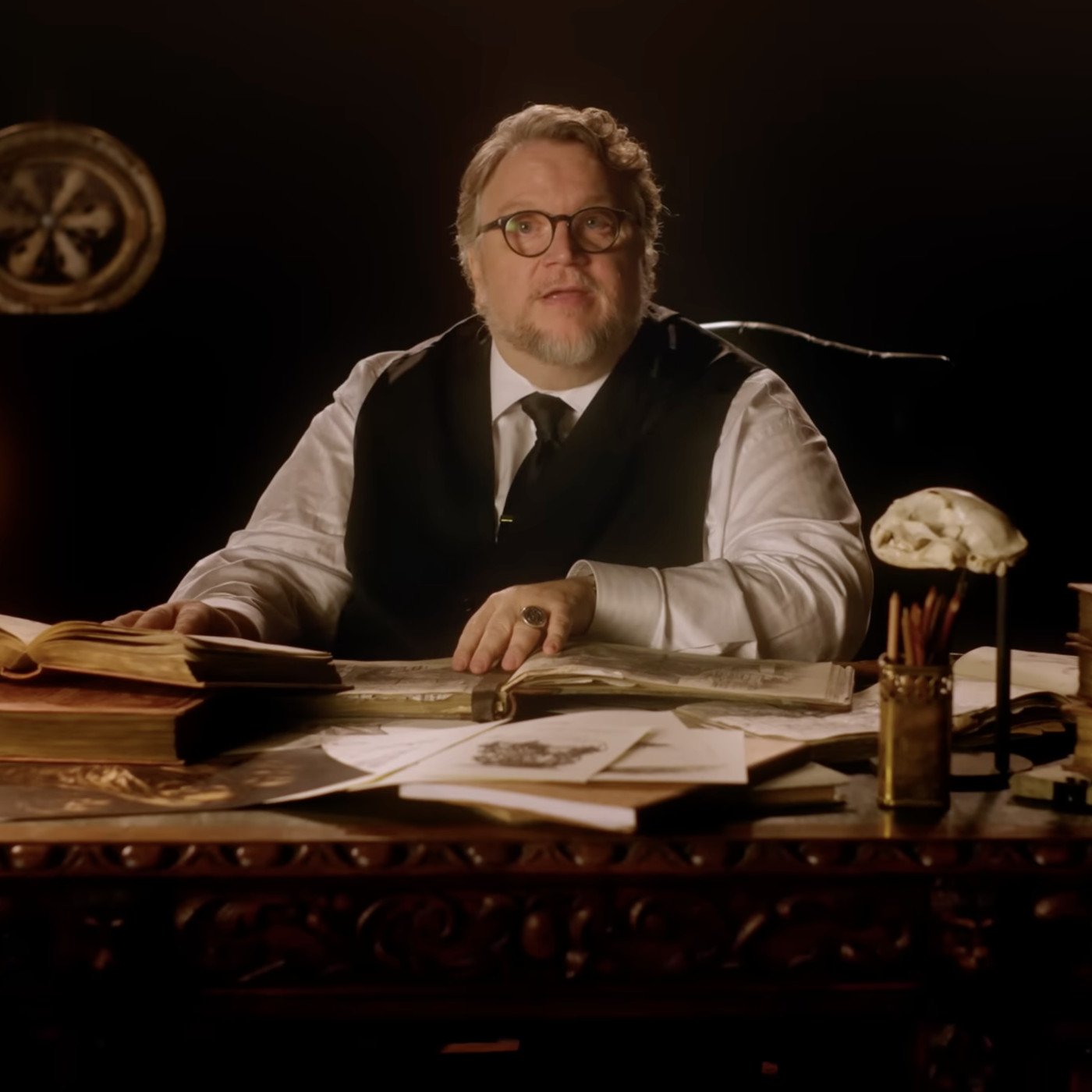
This eight-part horror anthology is curated by the titular director, renowned as a trusted authority in telling tales of the Gothic and in creating wondrous practical creatures. So just like his work for films like Pan’s Labyrinth, The Shape of Water, and Hellboy, Cabinet of Curiosities is also filled with frightful beings ranging from reanimated corpses to bloodthirsty aliens—and should make for a staple Halloween binge. Aside from a star-studded cast, the series is also co-helmed by some noteworthy directors, including Jennifer Kent (The Babadook), Catherine Hardwicke (Twilight), and Ana Lily Amirpour (A Girl Walks Home Alone at Night).

Toxic Town tells the true story of how toxic waste in the steel-making town of Corby, England led a group of affected mothers to pursue justice. Helping them out is pro-bono lawyer Des Collins (Rory Kinnear), while on the other end of the case is Corby’s local government, who (unsurprisingly) are in cahoots with the steel mill responsible for the poisoning. The show’s beats are familiar; it’s a classic legal drama with streaks of political corruption and conspiracy, while also being an underdog story about victims rising to the powers that be. But its familiarity is easily forgiven thanks to the heartwarming performances of Jodie Whittaker and Aimee Lou Wood, who play two of the mothers with disabled children. The show, though short at just four episodes, gives them ample space to grieve, celebrate, and essentially be human–as opposed to just angry women serving as plot points to a drama. Their humanization and compassion for one another, as well as the thrilling pace and intelligent back-and-forths, are what make the show worth watching.

Sirens is a psychological drama that follows Devon (Fahy) as she retrieves her sister from the grasp of her cultish, billionaire boss, Michaela (Moore). The five-part series is addictive, not just because of the juicy drama and the dagger-sharp, class-conscious dialogue, but also because of its deep understanding of the contradictions of womanhood. The women are alternately jealous and empathetic, pained and ambitious. And they’re led by a trifecta of compelling performances: it’s a thrill to watch Fahy, Moore, and Alcock go at each other’s throats.

This is an thrilling BBC/Netflix show and a Yakuza drama that takes place between Tokyo and London. About half of the dialogue is in Japanese and the other half is in English.
Yakuza families are no longer at peace when a boss’s nephew is assassinated in London. Trying to bring the culprit in without interference from the British police, a Tokyo detective is sent to the UK to try to find him.
There is an undeniable appeal to seeing the world of yakuza unfold, but the show’s title, which translates to Duty/Shame is a reference to the detective’s own personal conflict: the suspected murderer he’s looking for is his brother. Ouu.
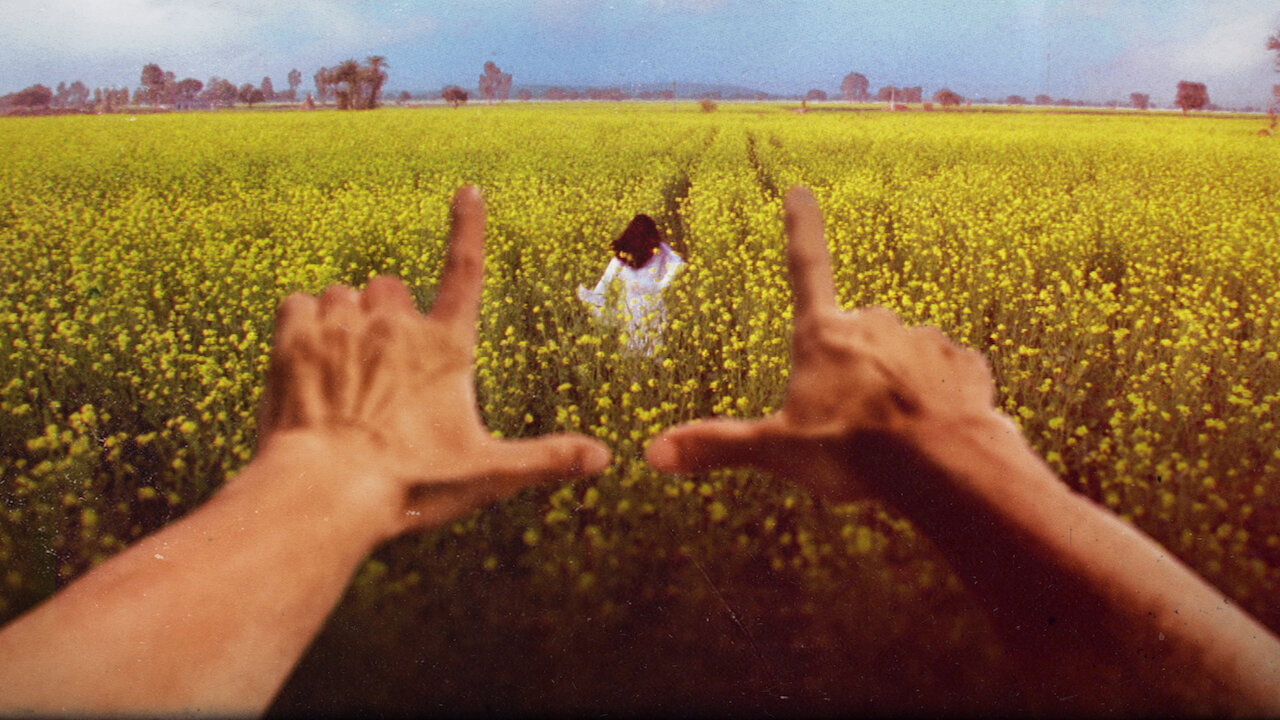
Bollywood is the biggest film industry in the world, in terms of output. After all, the Indian film industry churns out 700-800 films per year. Because of sheer output, there are plenty of excellent hidden gems from the South Asian country, some of which we try to cover here in A Good Movie to Watch. However, for a fairly comprehensive introduction to the industry, the English-language miniseries The Romantics is a great place to start. There’s no better filmmaker to take notes from other than Yash Raj Chopra, whose media conglomerate shifted the industry for the past 50 years, so the show tackles his legacy through archival footage and interviews from India’s current roster of film stars. Footage of his films alone are already a compelling watch, but director Smriti Mundra keeps an excellent balance between these films’ personal impact, as well as the corresponding political and film history in which his works were released to. It’s an excellent introduction to the colorful and rich film history of India.
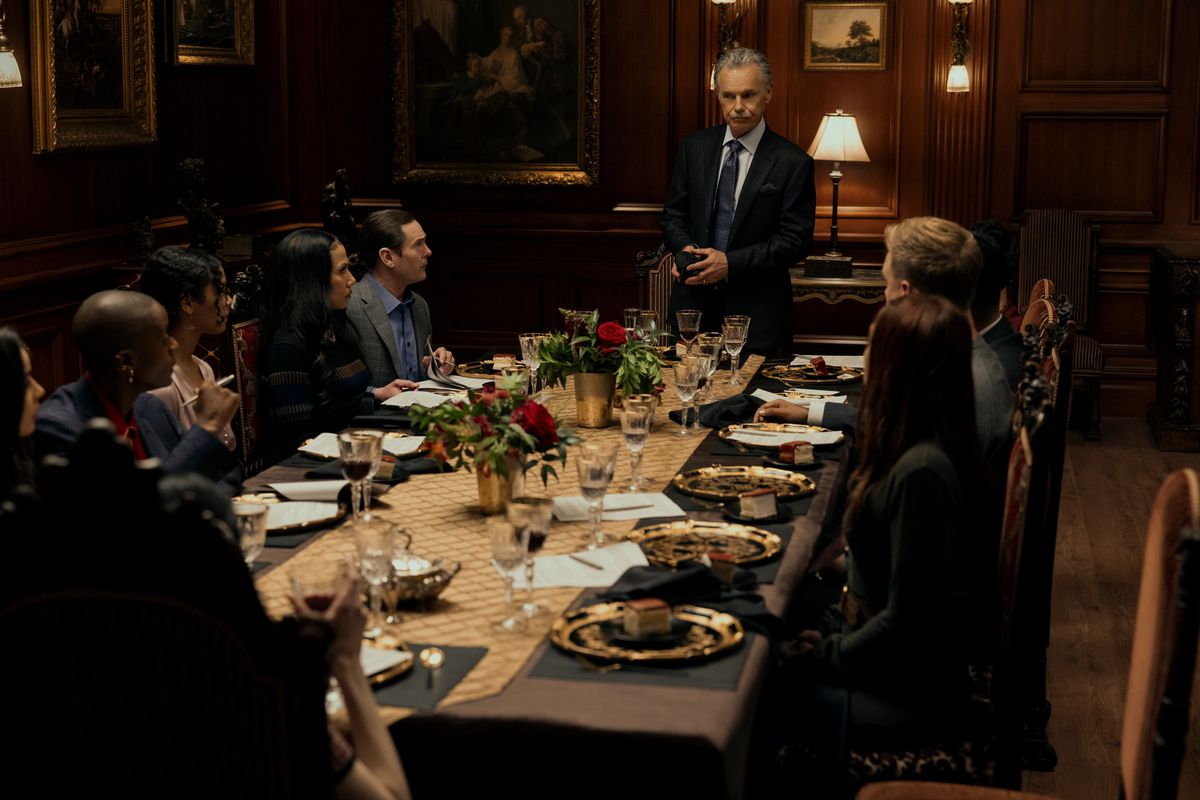
The Fall of the House of Usher isn’t an exact one-to-one television adaptation of the titular short story. Instead, the original story from Edgar Allan Poe is used as a frame to introduce a whole Succession-like miniseries, with names and subplots coming from other stories from Poe. Because of this, fans of the author might feel disappointed at the lack of old gothic flair, as the story is set a whole century and a half after, and the tone shifts as the show shifts from character to character. However, Mike Flanagan’s whole ensemble still proves to be entertaining as the Usher family deals with sci-fi mishaps, internal sabotage, and a possible supernatural element haunting the whole brood.
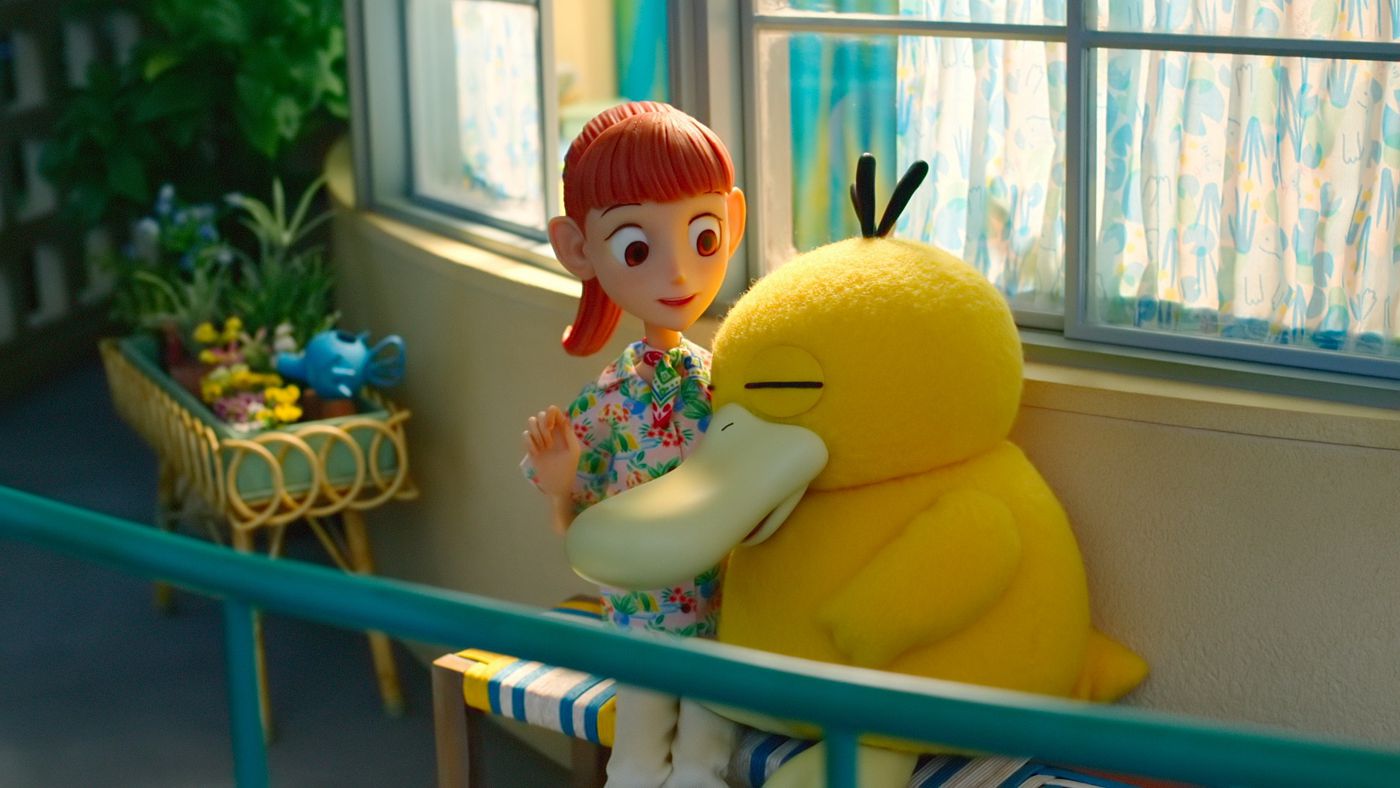
Pokémon is one of the world’s most popular franchises, and it’s mainly centered around the idea of cute, colorful creatures with special powers to be caught, trained, and put into battles. Pokémon Concierge is a different side to the franchise, but instead of the high-octane action and world-ending fights, the four-episode series contemplates the idea that maybe these cuddly creatures need to rest too. As anxious newbie Haru adjusts to the laidback, paradisal resort, and acquaints herself with felt-fabric versions of the familiar cartoon creatures, Pokémon Concierge is an excellent reminder to enjoy yourself once in a while.

With a film version that didn’t live up to the hype of the original novel, Netflix’s adaptation of One Day released just in time to wreck the fans’ hearts all over again, but this time, it’s a good thing. The expanded runtime allowed Netflix to delve more into the moments in the novel, with each episode dedicated to a day in the year in Emma’s and Dexter’s lives, contrasting their respective worlds and opportunities available to them as different members of London society. And the couple is played beautifully by Leo Woodall and Ambika Mod, with a believable chemistry that isn’t formed in a single spark, but made in multiple moments. If you’re needing a good cry just right before Valentine’s Day, One Day is a superb slow burn romance to let those tears out.
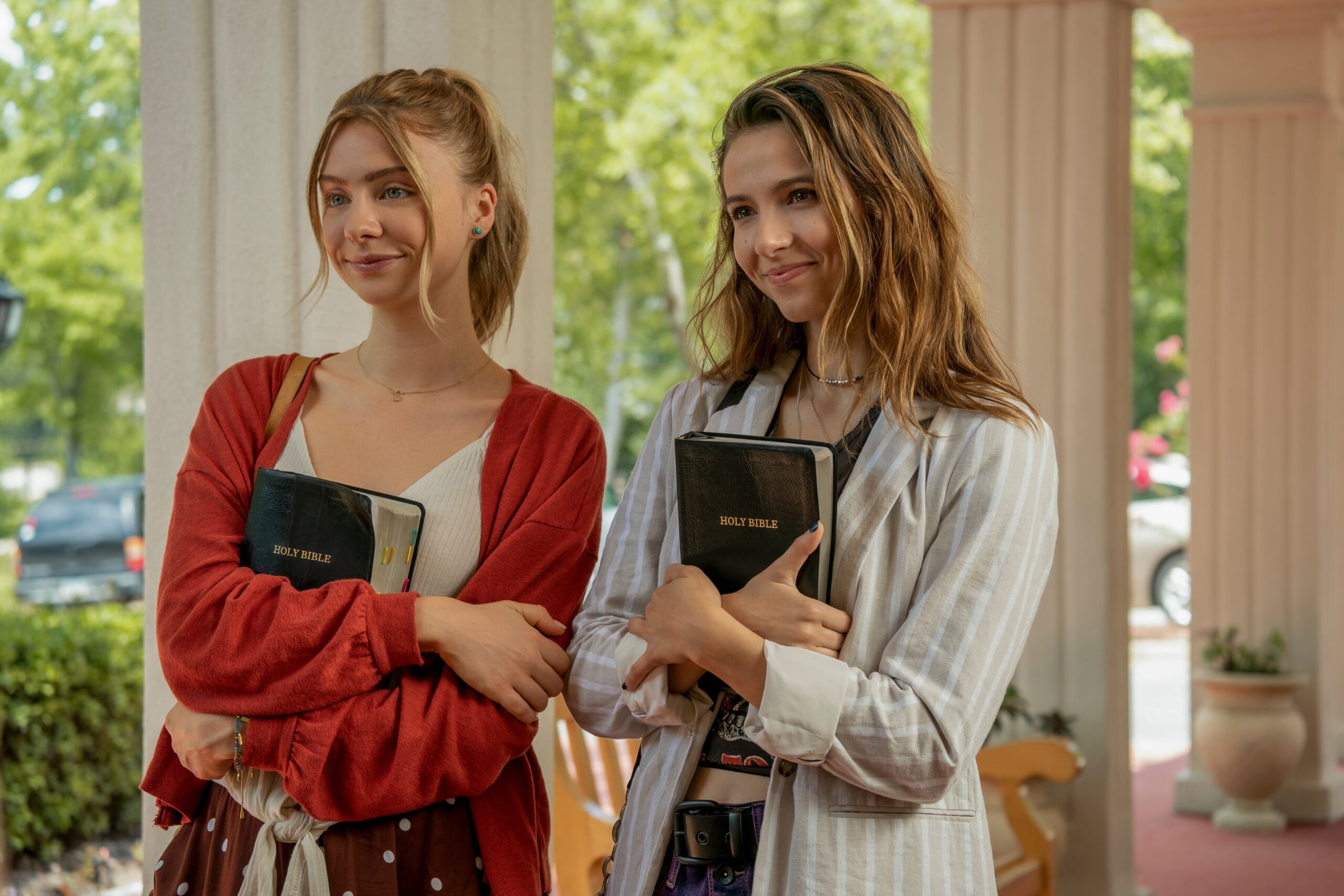
With the deluge of hyper-stylized teen shows everywhere (but especially on Netflix), Teenage Bounty Hunters comes as a refreshing and welcome surprise. Sisters Blair and Sterling, played by Anjelica Bette Fellini and Maddie Phillips respectively, strike the perfect balance between spiky and endearing, creating a chemistry that’s rare to see among TV siblings. There’s friction but also love all around.
Their interactions alone make the series thoroughly enjoyable, but their coming-of-age hijinks and comedic timing, especially around their reluctant mentor Bowser (Kadeem Hardison), make it an absolute must-watch. If you enjoyed Booksmart but wished it was more action-packed, you’ll surely love this show.
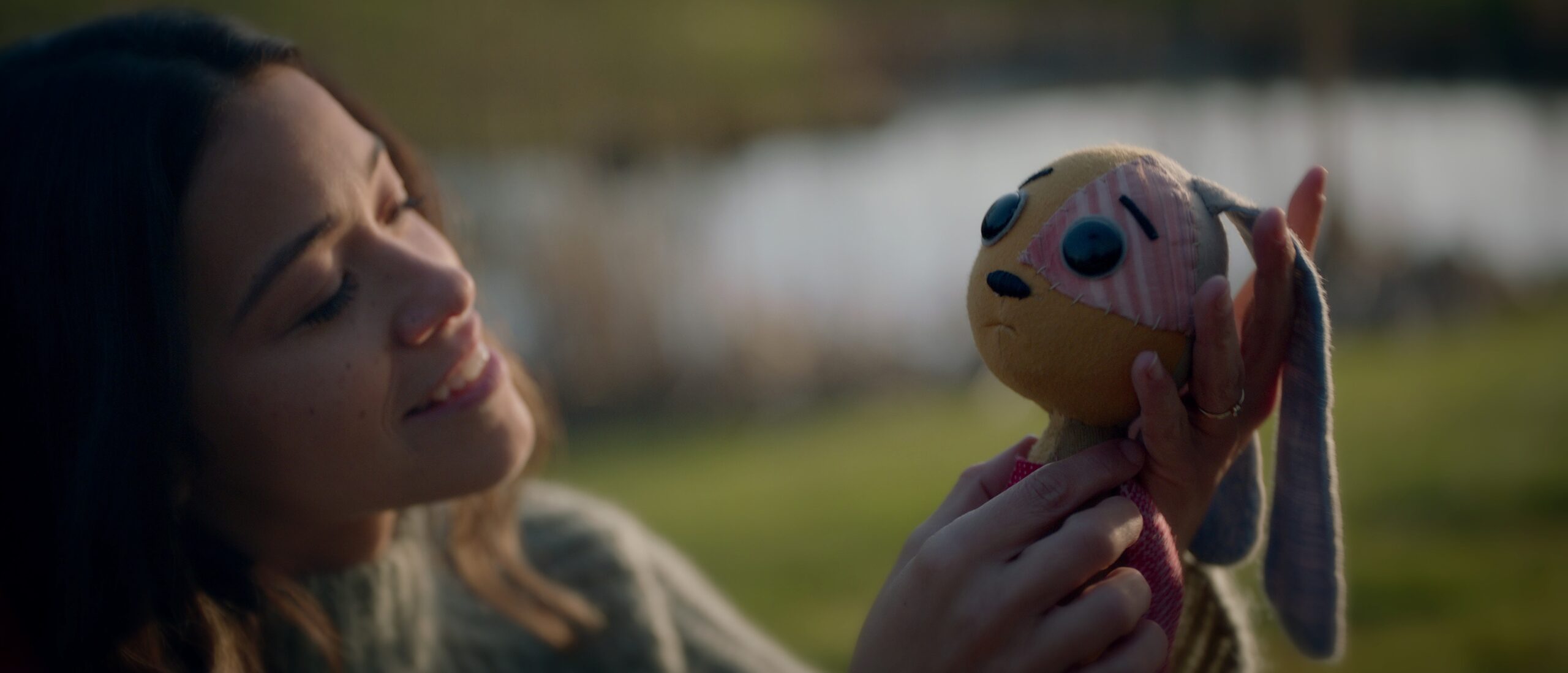
The Netflix four-part miniseries Lost Ollie is a bit like if Toy Story was adapted into a live-action dramedy. You’ll recognize the premise immediately: lost toy comes to life and loyally sets out on a journey to find its kid. But stuffed in between those points are poignant moments and reflections about life, family, and being.
The film isn’t also afraid to touch on darker themes, so if you’ve always wished for a slightly more mature but still kid-friendly version of this narrative—and if you’re a fan of the likes of Paddington the Velveteen Rabbit—then you’ll enjoy Lost Ollie.
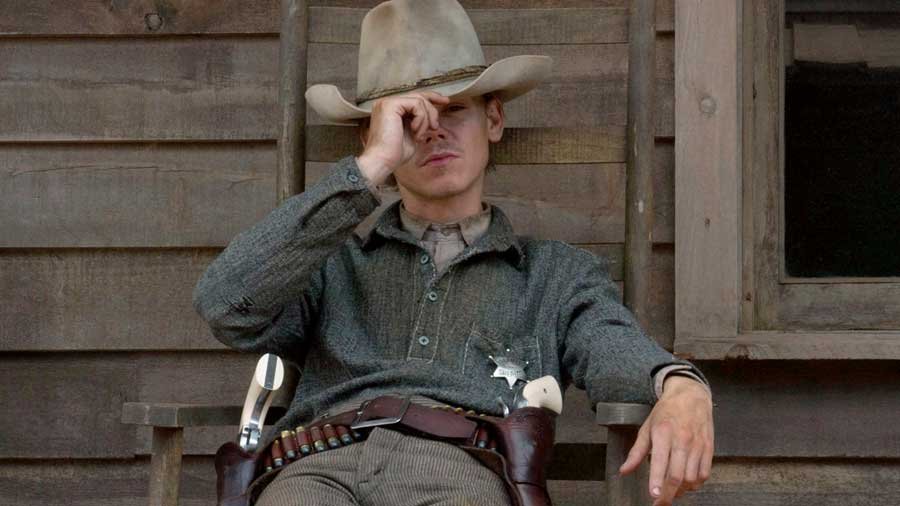
Very violent, very Western, and, in a breath of fresh air: very female. Godless is a grim and visually stunning series about a small New Mexico town populated almost entirely by women, including Alice Fletcher, a reserved and self-reliant widow played by Michelle Dockery. Roy Goode (played by Jeff Daniels, who won an Emmy for it) is an outlaw chased by a much worse outlaw, Frank Griffin, who is taking in by the mysterious, gun-toting widows. Written and directed by Scott Frank and executive-produced by Steven Soderbergh, Godless is an honest and powerful show with amazing performances. So amazing, it’s hard to single one of them out. If you love Westerns but sometimes find them too foreseeable, this show is for you.

Since the 1960s, Flint, Michigan, has experienced a series of shocks. When General Motors downsized their workforce by several 10.000, the town’s population nearly halved. Unsurprisingly, it later became known for being one of the most dangerous cities in the US and for off-the-charts crime statistics. Since 2014, Flint again rose to tragic fame for a public health emergency due to contamination of its local water supply. Flint Town homes in on this perpetual state of crisis through the eyes of the local police department, who had to grapple with this dire scenario, while losing more funding year over year due to the city’s deteriorating financial situation. The few officers that are left for policing are at breaking point. The result is a gripping and rich docuseries with a host of strong characters. But it is also a brutal and sobering account of the extent to which an American city is being allowed to fail.

There are only 20 seats in Formula 1 each year, meaning that drivers are not only racing to win but to be kept on the roster. With the big stars, Ferrari and Mercedes, habitually shrouded in secrecy, Formula 1: Drive to Survive focuses more on the back of the grid. Lewis Hamilton, the five-time world champion, is rarely seen, for example, giving more room for other stories to unfold, including that of Günther Steiner, the Italian team principal of the Haas Formula One Team. That is not to say there are no big reveals. Even if you think Formula 1 is a decadent, testosterone-driven sports for rich Europeans, Drive to Survive might be welcome crash course into what makes this sport so appealing for many and might also have the potential to change your mind. If not, it is still a very well-made, slick, and engaging docuseries that will have enthusiasts and newcomers thoroughly entertained.
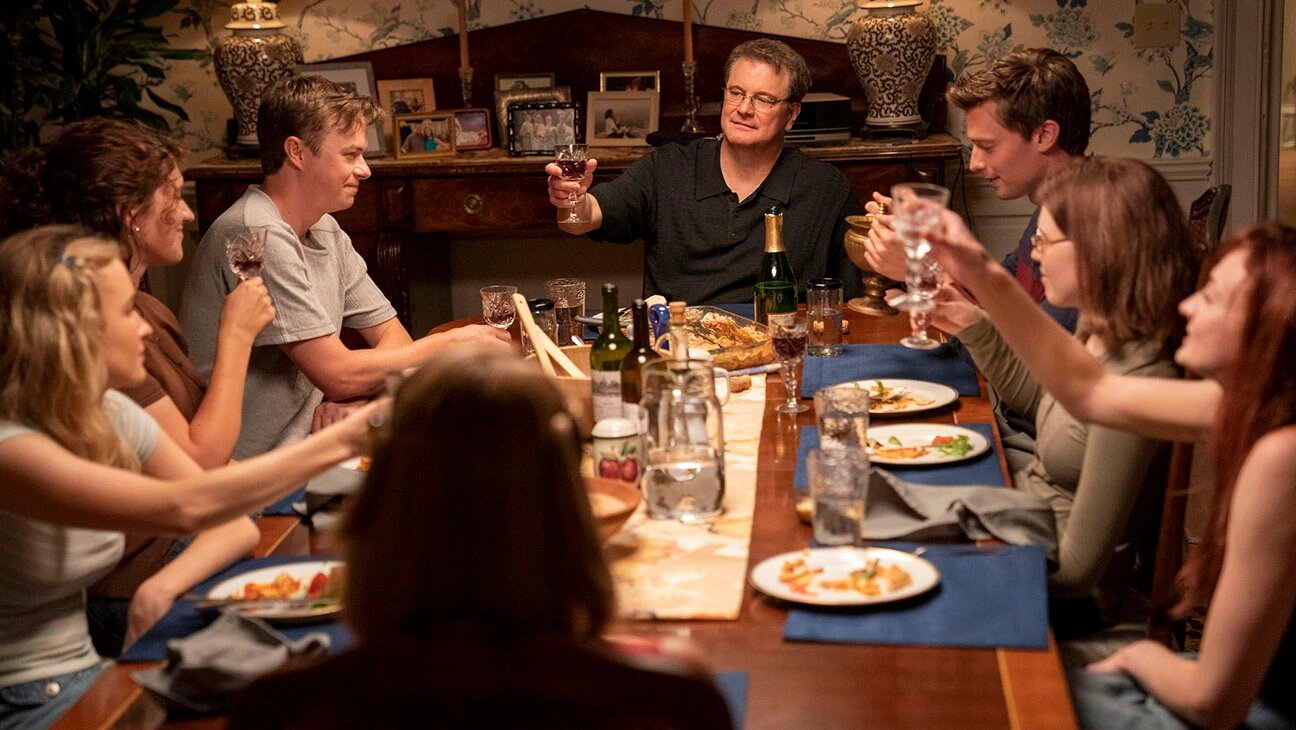
The bizarre case of Kathleen Peterson’s death, which has yet to be fully resolved to this day, has been the subject of many a media article. The press covered it relentlessly when it all started in 2001, then a critically-acclaimed documentary was released in 2004. This was followed up with a sequel in 2018, and now more than 20 years after the deed, a dramatization has come out in the form of a miniseries. You’d be forgiven for thinking the latter couldn’t possibly have anything new to offer, but you would also be wrong. In fact, the series is a masterclass in storytelling. Led by an a-list cast (of which Colin Firth is the absolute standout) and told with such layered depth, The Staircase is a must-watch not just for true crime but for film and TV fans everywhere.
Utilizing time jumps and crafty transitions, The Staircase isn’t set at one particular time, which is fitting considering the trial lasted for 16 years. It also isn’t centered on just the mystery or the family, but instead is just as interested in the making of the 2004 documentary that introduced (and humanized) the case to an even wider sect of people. If you’re looking for a neat ending or some form of satisfying retribution, you won’t find it here. But you will be getting an engrossing meditation on truth and its elusiveness

There’s no point denying it: Michael Jordan is one of, if not the greatest of all time. What he did to place the Chicago Bulls on the map, to inspire his teammates to a three-peat championship, and to constantly reinvent himself and grow his name as a currency—all that continues to be a template for NBA stars across generations. The Last Dance is a fittingly grand docuseries that captures Jordan’s once-in-a-lifetime shine.
Even if you know little to nothing about basketball, the miniseries does an impressive job of making every detail about Jordan and his game compelling. We follow him from his early days in college basketball up to his nonstop rise in the Bulls to his stint in baseball, and we end at a dramatic high, as the title suggests, during the Bull’s triumphant 1997-1998 series—Jordan’s final season with the team.
But the series isn’t all Jordan. In clever and comprehensive ways, we get to learn more about his teammates (especially defense rockstar Dennis Rodman and reliable ally Scottie Pippen), his coaches, and his closest friends, all of which makes for a well-rounded and truly riveting watch.

Reimagining a children’s classic as a mature serial killer mystery, PLUTO already had high expectations for its anime adaptation. The limited series adds an additional challenge, with only hour-long episodes dedicated to each of the series’ eight volumes, which follows not only Gesicht’s own investigation, but also in-depth stories of each of the remaining Great Robots. However, the anime, now showing on Netflix, is able to meet this challenge with its deep understanding of the source material. It’s not just a straightforward police procedural, or just futuristic dream of how AI and humans can co-exist. PLUTO is a robot series that strikes at the heart of what it means to be human.
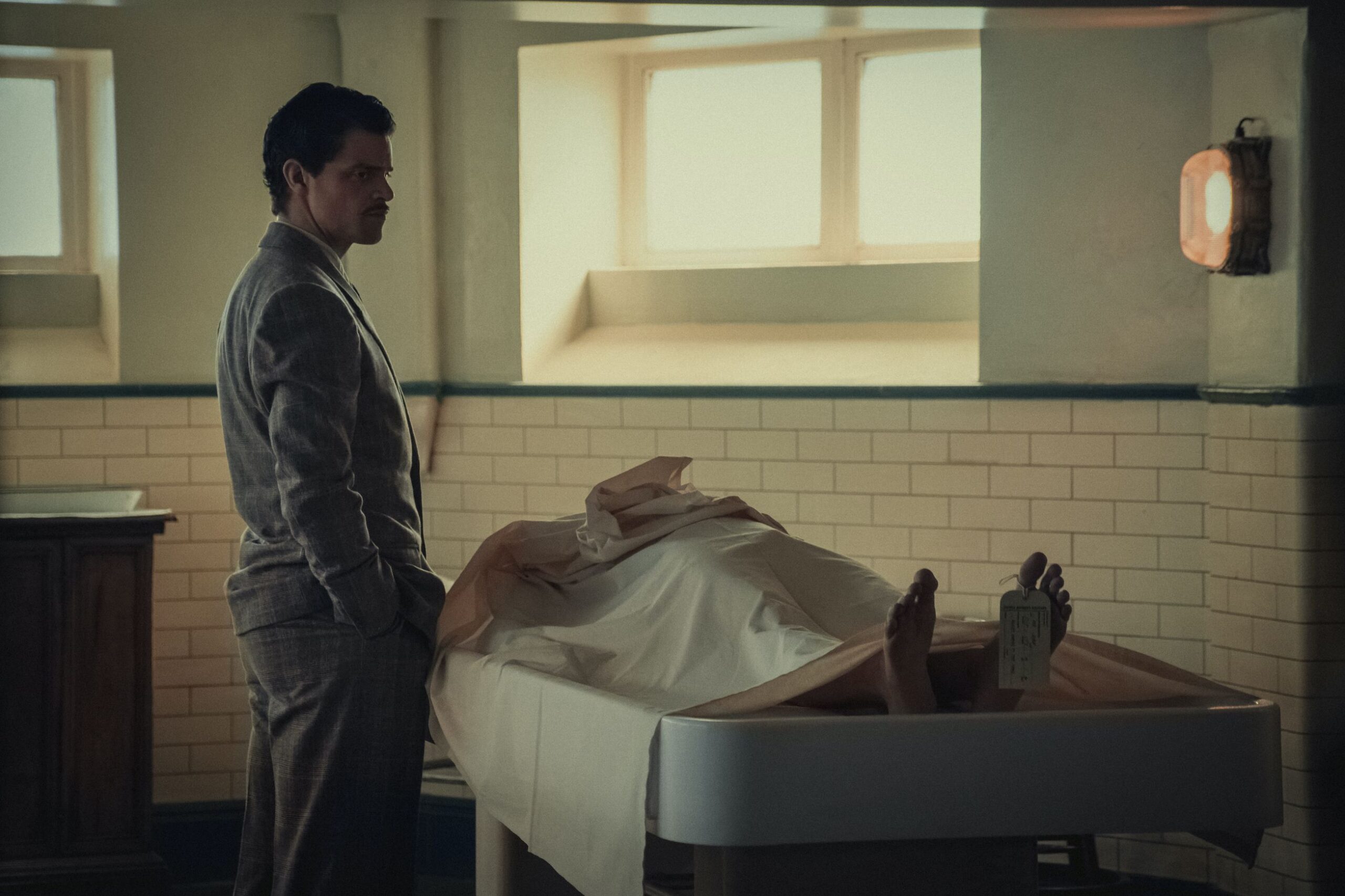
Based on the DC Vertigo comic, Bodies is an intriguing crime thriller with a unique twist – one body, in four separate time periods, being solved simultaneously all at once. While the show is triggered by the same body, the mini-series feels like four separate shows at the same time, marrying the classic Victorian detective mystery, war-torn film noir, and modern day police procedural through post-apocalyptic science fiction. And the four separate detectives take the helm of their respective side of the case, as well as how they deal with the discrimination against them. With four excellent strands to the same mystery, Bodies is an exceptional adaptation that demonstrates how even though details change, some things still remain the same.

On the surface, The Makanai is a simple, slice-of-life show about food and friendship. While it is that, to be sure, it’s also a substantial drama that tackles questions about art vs. love, and love vs. companionship, and career vs. purpose. Under the gentle guidance of showrunner Hirokazu Kore-eda (Still Walking, Shoplifters, Broker), who generously allows up-and-coming directors to take the helm on certain episodes, The Makanai feels at once light and hefty, comforting and challenging. We’re seeing mundane events unfold before us as if we were bystanders, but we also understand that there is so much more happening than what meets the eye. A prolonged gaze, a lovingly prepped meal, an especially sharp wing-eye, all of these have much to say about the state of mind of these girls.
It’s a supremely gentle and culturally rich show with a tender heart; a truly great watch on all accounts.
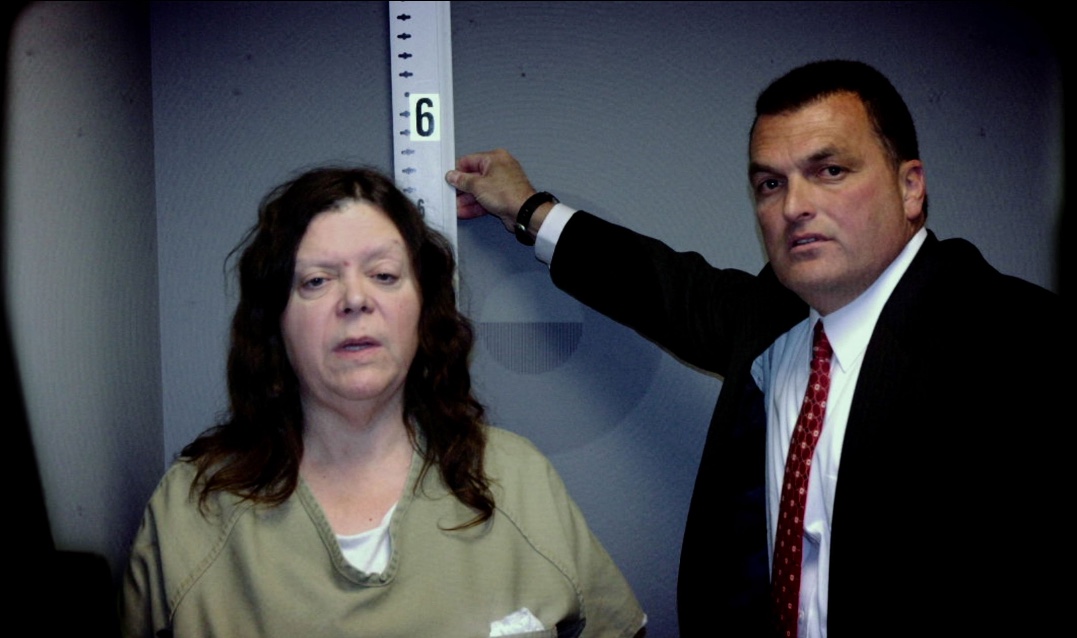
There is footage and coverage to prove that the pizza bomber story actually happened but watching Evil Genius: The True Story of America’s Most Diabolical Bank Heist everything is so intriguing it is almost impossible to believe. A pizza-delivery guy shows up to rob a bank with what he says is a bomb secured around his neck, something that he claims is part of a treasure hunt. By robbing the bank, he will unlock the next set of clues that will allow him to defuse the bomb. Bank tellers comply but on the way out he is suddenly arrested by the police, who doubt his claims, handcuff him and keep him at a distance. The device he has around his neck then starts beeping. What follows is one of the most unusual investigations ever led by security forces, brilliantly framed by executive producers Duplass brothers. A perfect follow-up to their other amazing True-crime Netflix collaboration, Wild Wild Country, it’s a tight 4-episodes that is equally terrifying and intriguing.
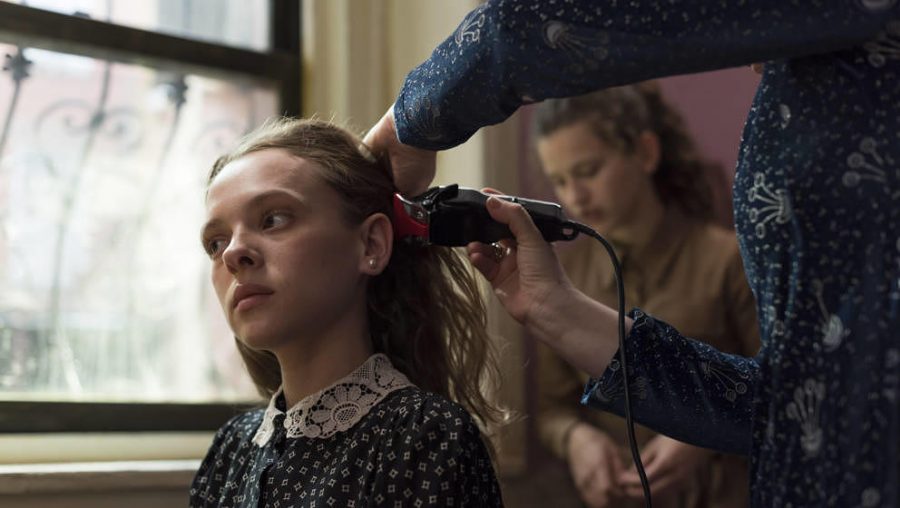
This excellent new miniseries is a drama that takes place in an ultra-Orthodox Jewish family. Esty, a nineteen-year-old girl who is unhappy in her arranged marriage, escapes this community and travels from New York to Berlin in hopes of starting a new life.
Like all good realistic dramas, there are no truly bad people in Unorthodox. Everyone is trying to do what they think is right, which still makes for very complicated situations. Esty is played by Israeli actor Shira Haas and I know this word is overused but she really is a revelation.
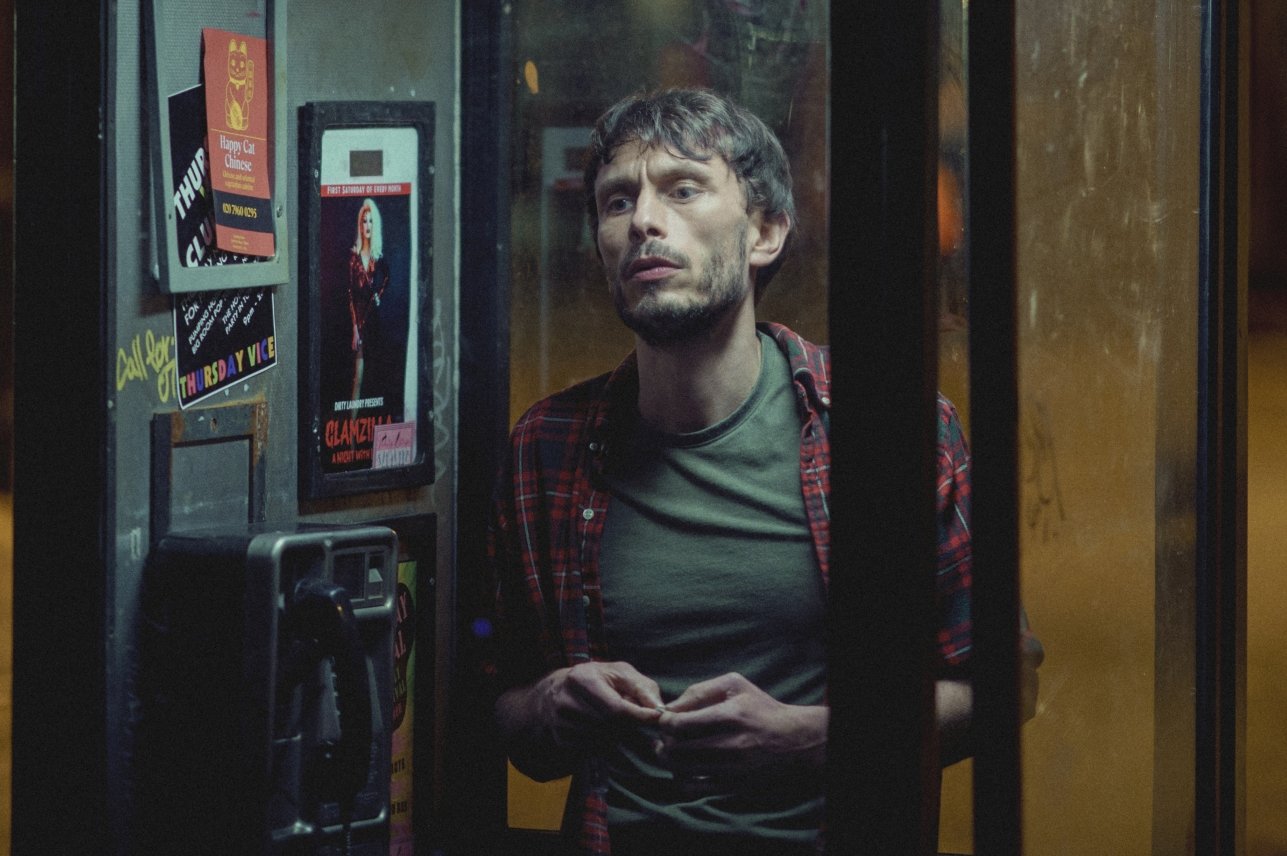
Baby Reindeer is a tough watch, starting out with out of kilter comedy that eventually and unrelentingly reveals its darker and darker sides. But not only was this a hard show to watch, this story is genuinely difficult to tell, because of how entangled all the threads of Donny’s trauma gets– it’s not a straightforward story about going through one traumatic incident and then immediately moving to logical forms of healing. It’s about one traumatic incident keeping him stuck and leaving him and his loved ones vulnerable to even more abuse. It’s a terrifying situation. And it’s terribly, terribly honest.

We call it a Netflix true crime documentary, but, in fact, this compelling four-parter is much more than that. It homes in on the fate of an immensely empathetic, soft-spoken, and likable family man, who loses his teenage son to drug-related violence in New Orleans’ notorious Lower 9th Ward in 1999. With corruption rampant in the city’s police department, he takes matters into his own hands and investigates his son’s murder by himself.
In doing so, main protagonist Dan Schneider notices a rise in opioid prescriptions from one doctor in particular. Fueled by a relentless determination to protect other children from addiction, he quits his job and begins gathering evidence against this doctor and, by extension, the company responsible for the sale of the notorious opioid-based painkiller Oxycodone: Purdue Pharma. In the course of his investigation, Schneider records all his findings, evidence, and intimate thoughts on audio and video. This sense of immediacy and the pretty breathtaking twists of his story make this Netflix production rise above other true crime formats. It uses the power and charisma of one individual to come to grips with a crisis of global proportions.
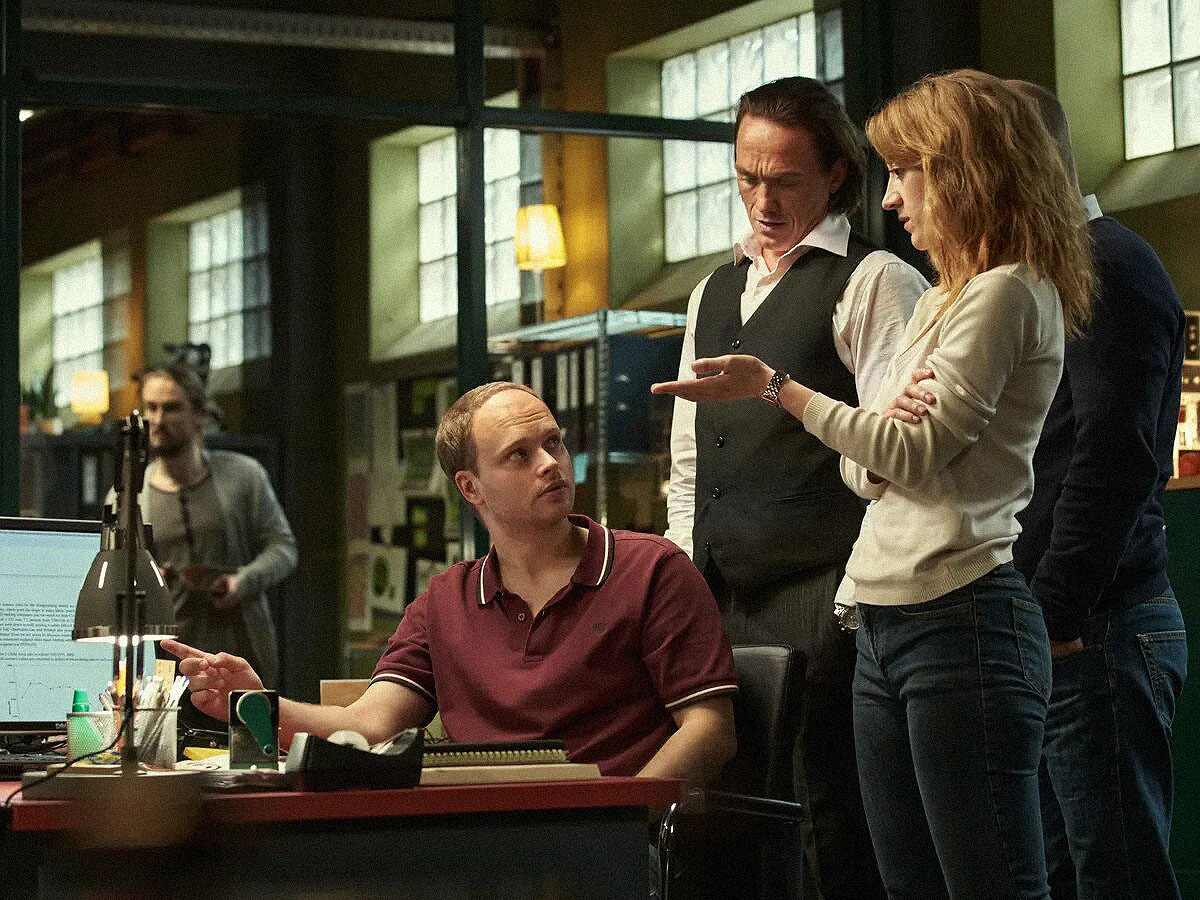
In the early 2000s, amid the rapid rise of online piracy and the consequent fall of paid music, tech genius Daniel Ek would find Spotify, a revolutionary streaming platform that served as a middle ground between user accessibility and artist rights. But even now, at its peak, Spotify’s success seems mystifying. How did they get away with providing free music to all?
Enter The Playlist—an impressive attempt at answering that very question. In this fictionalized account, key players in Spotify’s success are given their own episode-long arc, starting with the visionary himself, Ek (played by Edvin Endre), followed by the artist, the coder, and the industry insider, to name a few. By employing multiple perspectives, each with its own cinematic style (a particular favorite is that of the lawyer’s, the most experimental out of all the episodes), The Playlist manages to spin the technical and complicated story of Spotify’s origins into something fresh, dynamic, and addictive. Despite utilizing the Rashomon effect—risky but rewarding in this case—The Playlist rarely strays from its main point and, the result is a lean, well-rounded story that’s just as credible as it is heightened.
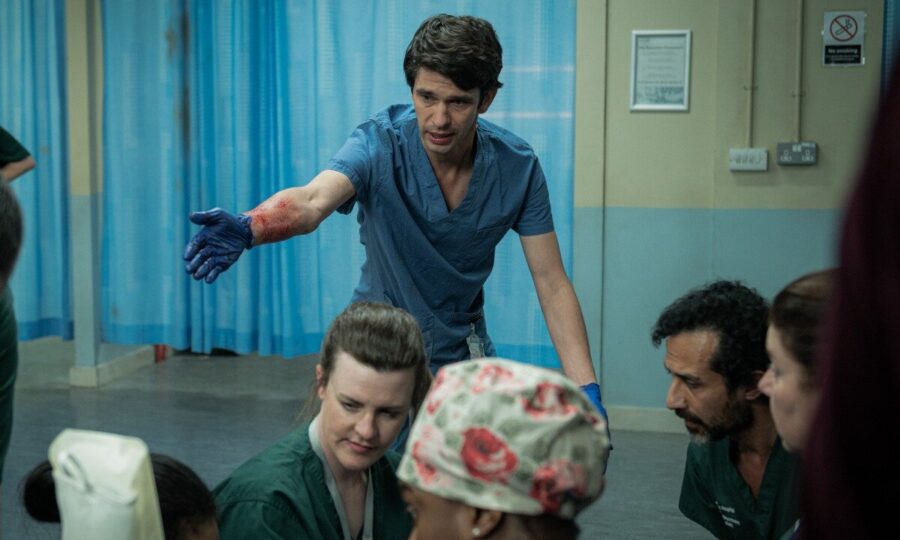
In the dark comedy This Is Going to Hurt, Ben Whishaw stars as junior doctor Adam, who’s barely keeping it together in the understaffed and under-equipped ob-gyn ward of Britain’s NHS hospital. We see, often in sad and graphic detail, what goes on in a public hospital and the heavy toll this takes on both the patients’ and medical staff’s personal lives. It’s hard to look away, especially when Adam addresses us in the first person.
Even more upsetting? The miniseries is based on a memoir. Former medical trainee Adam Kay wrote a best-selling book detailing his horrific time at the NHS, and now he serves as executive producer and writer of the series.
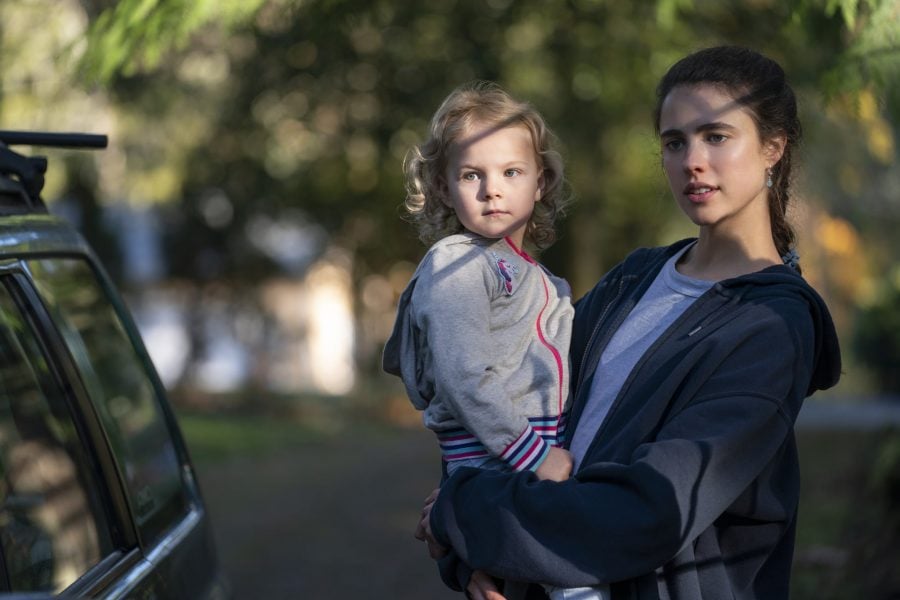
This excellent drama miniseries starts in the middle of one night when Alex, a 25-year-old, grabs her daughter and flees her home. She is chased by her abusive boyfriend but doesn’t look back. She has 18 dollars to her name.
The story is based on a real-life memoir called “Maid: Hard Work, Low Pay, and a Mother’s Will to Survive”, where Alex’s character (based on executive producer Stephanie Land) does everything to get her daughter and herself to a safe environment. She gets a trial at a cleaning job.
Maid does such a good job at portraying the many stresses that Alex goes through: will she have enough gas? Will she find a safe place to sleep? Will she get to the cleaning job on time? And as the series progresses, the questions become different but the stress is the same – except in episode five, in which she cleans a weird house, and then it becomes an actual horror movie.
And on every other aspect, the show delivers. The cast, led by Margaret Qualley and her real-life mother Andie MacDowell, is phenomenal. Each episode is long enough to leave an impact but not too long to be melodramatic. The scenery (set in Washington state but filmed in British Columbia) is gorgeous. It’s such an all-around great show.
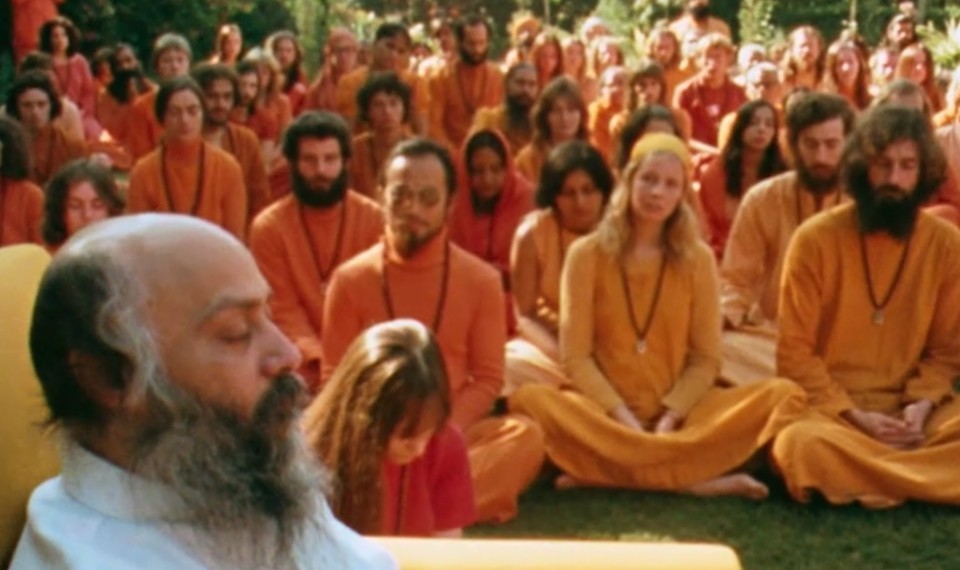
Wild Wild Country follows the relocation of a hippie cult from India to Oregon in 1981. You haven’t heard of Wasco Country? Nor had anybody else back then. This ghost town with a handful of god-fearing inhabitants, soon became Rajneeshpuram, the cult’s new homestead, home to a thousand disciples, and the subject of nationwide media attention. Spoiler: the town’s old residents did not think much of it.
Will there be debaucherous orgies, long-haired drop-outs, preaching and chanting? Yes. But, through historical footage and interviews with contemporaries, including Ma Anand Sheela, the power-hungry secretary of the orange-clad guru, you will also be absorbed by chemical weapons and attempted murder, one of the biggest immigration fraud case in US history, and, of course, the mysterious and not-so-mysterious ways that a charismatic cult attracts and manipulates its followers. Across six one-hour episodes, this Netflix miniseries by brothers Maclain and Chapman Way gives a captivating, exhaustive, and powerful account of one of the stranger moments in American media history.

